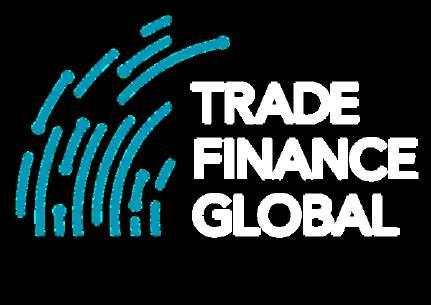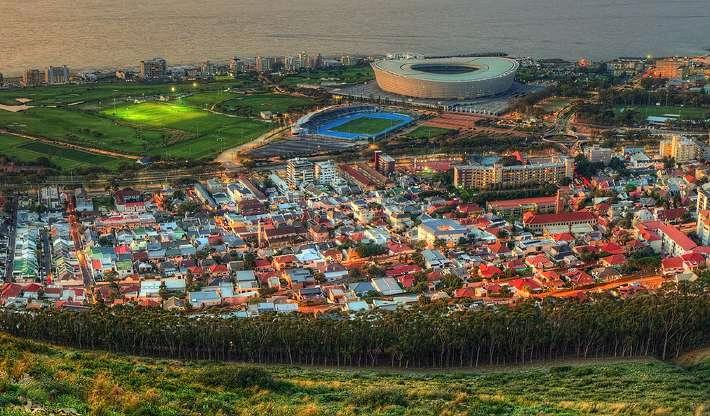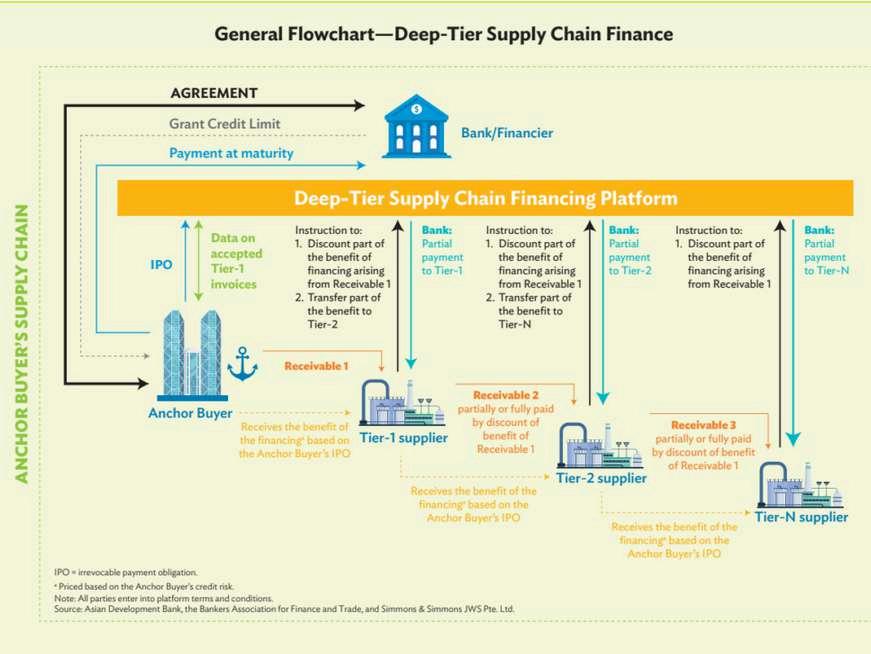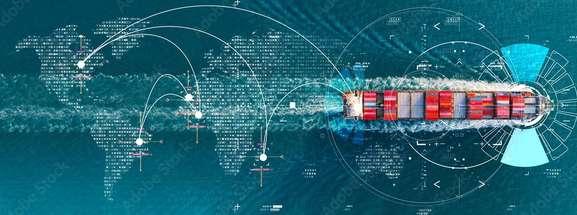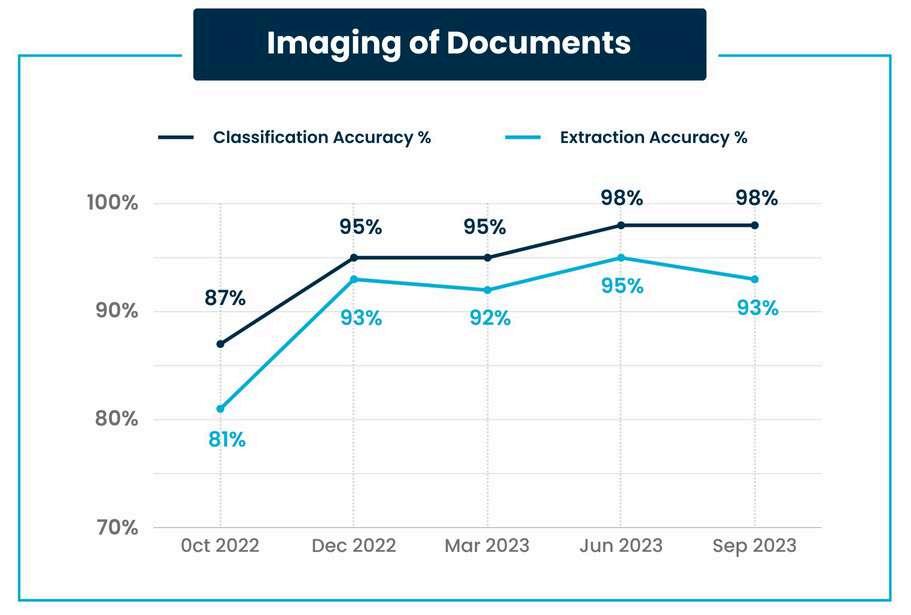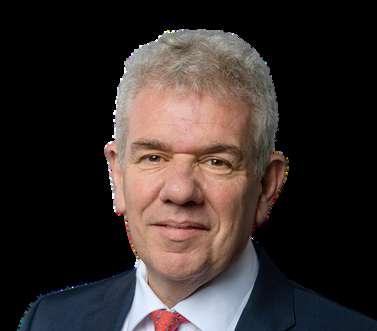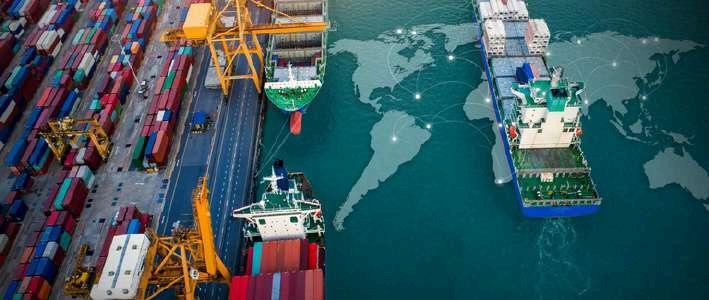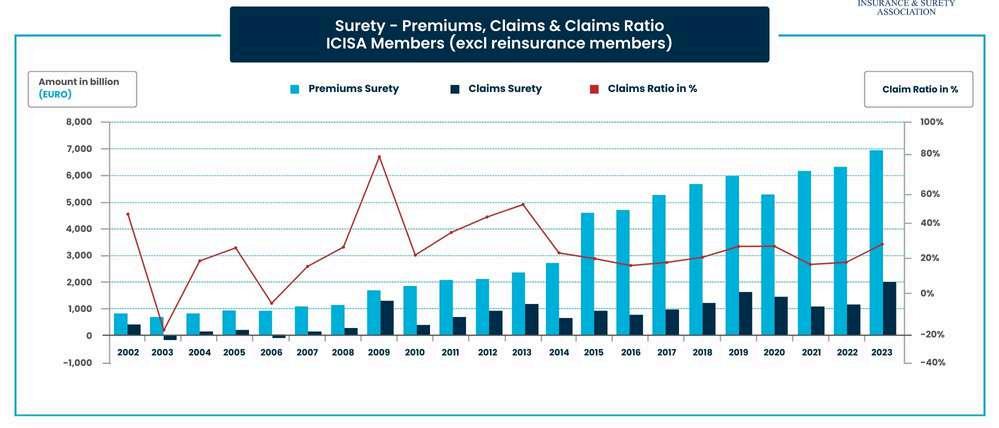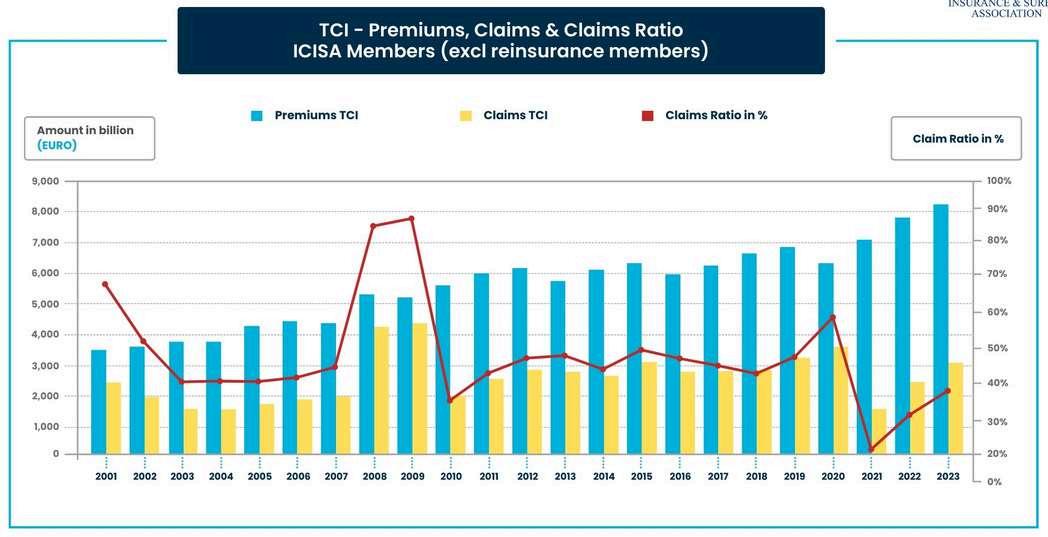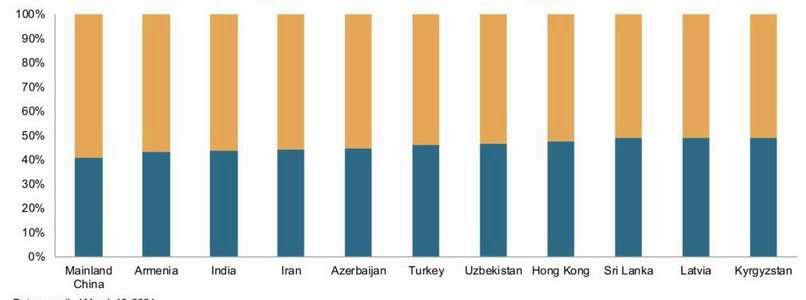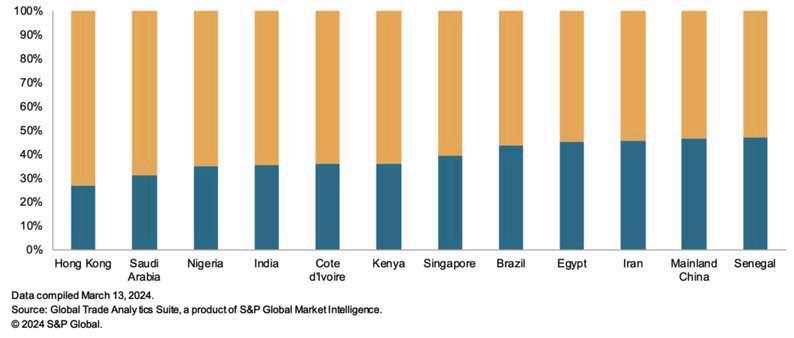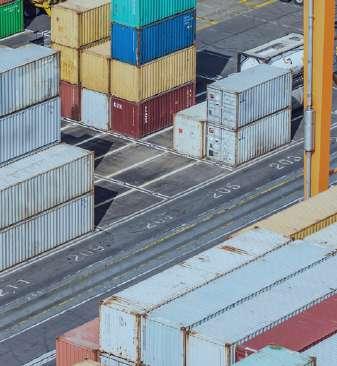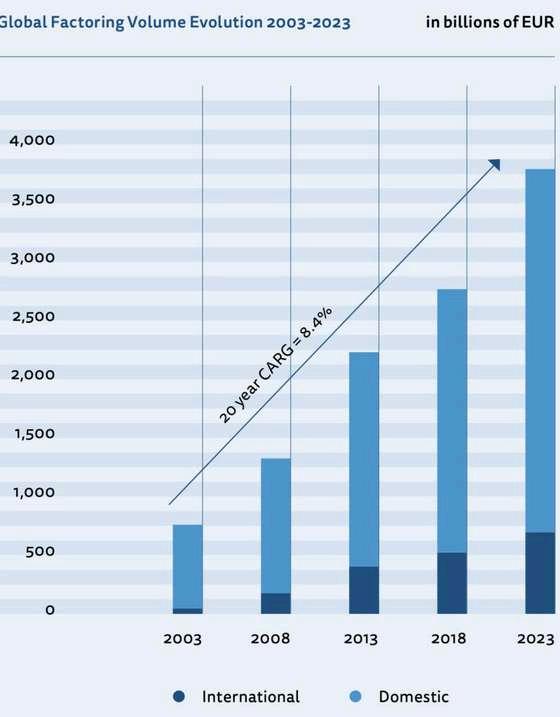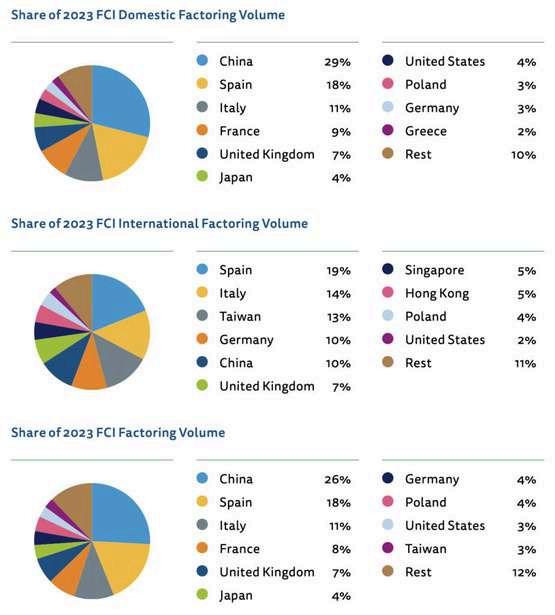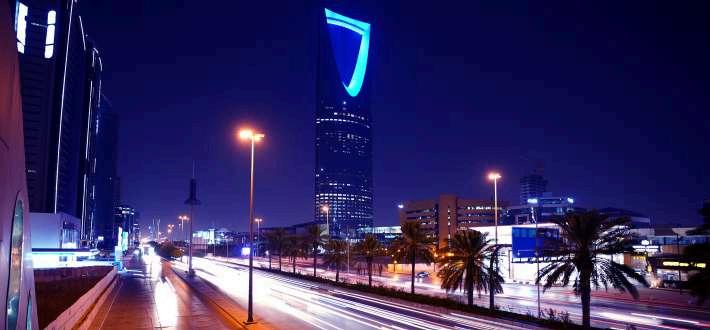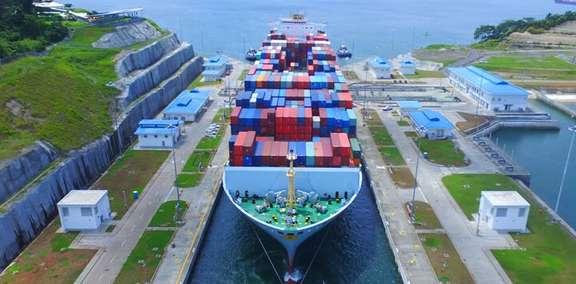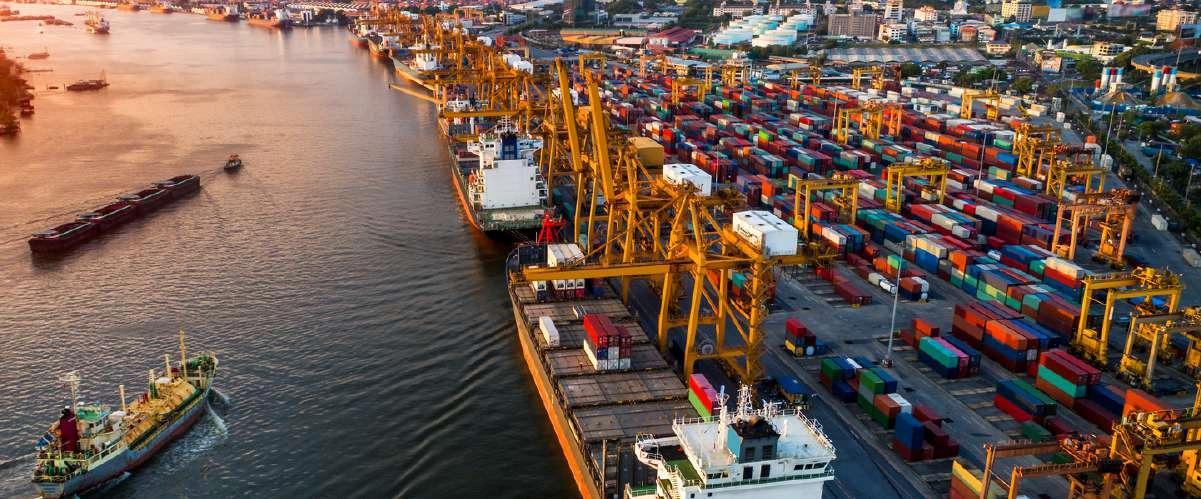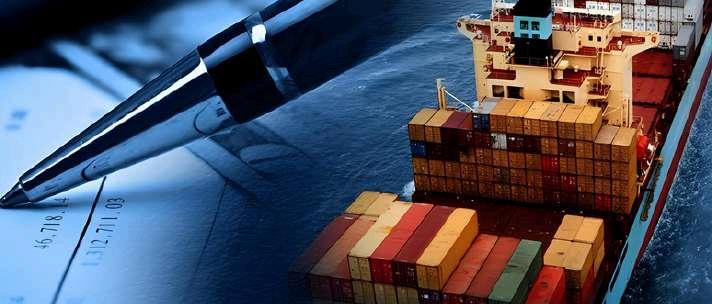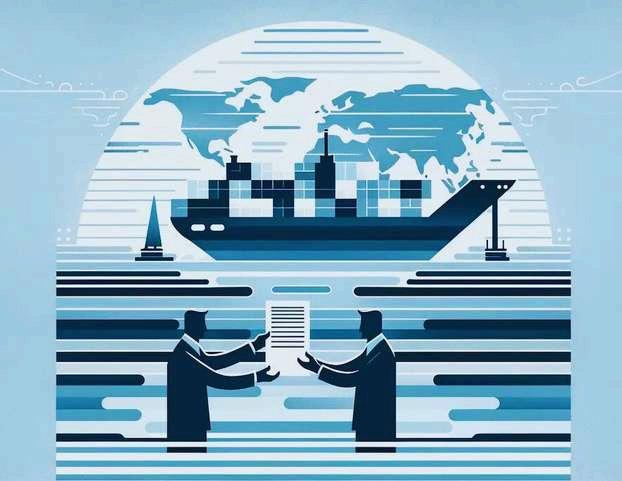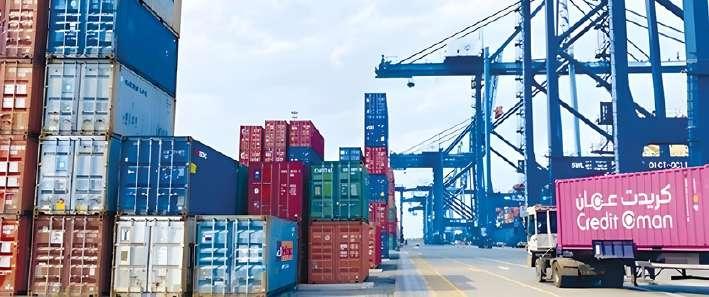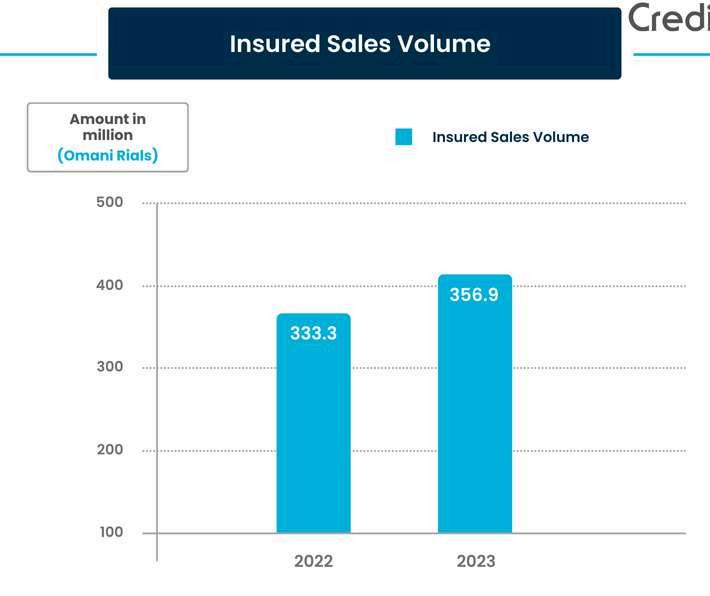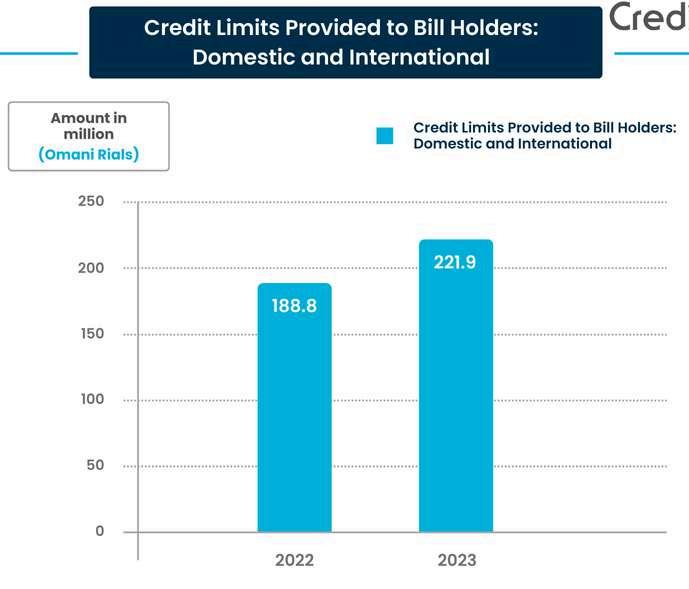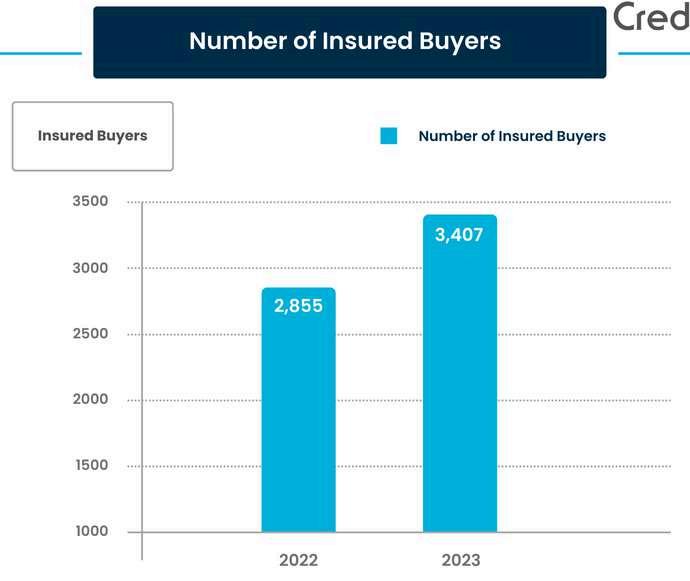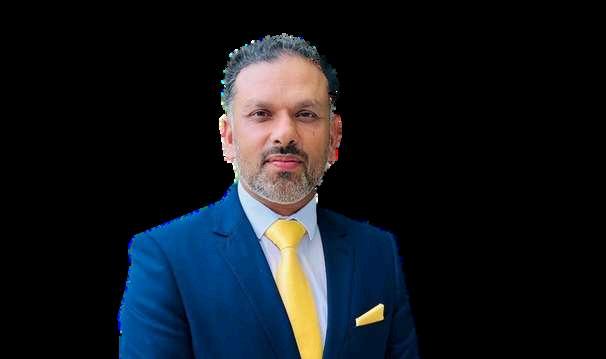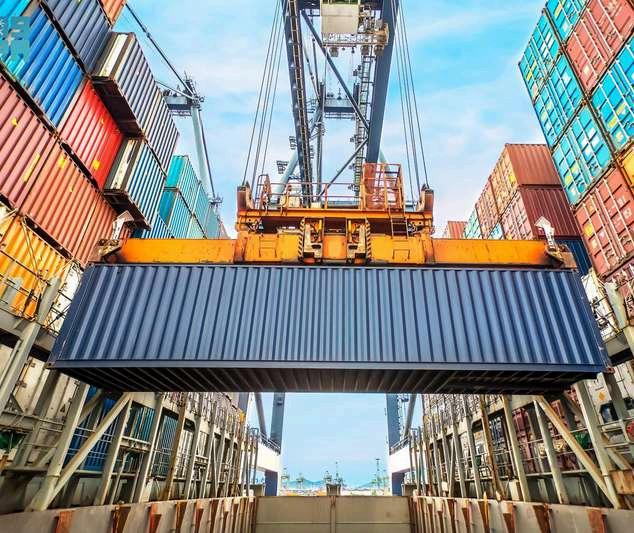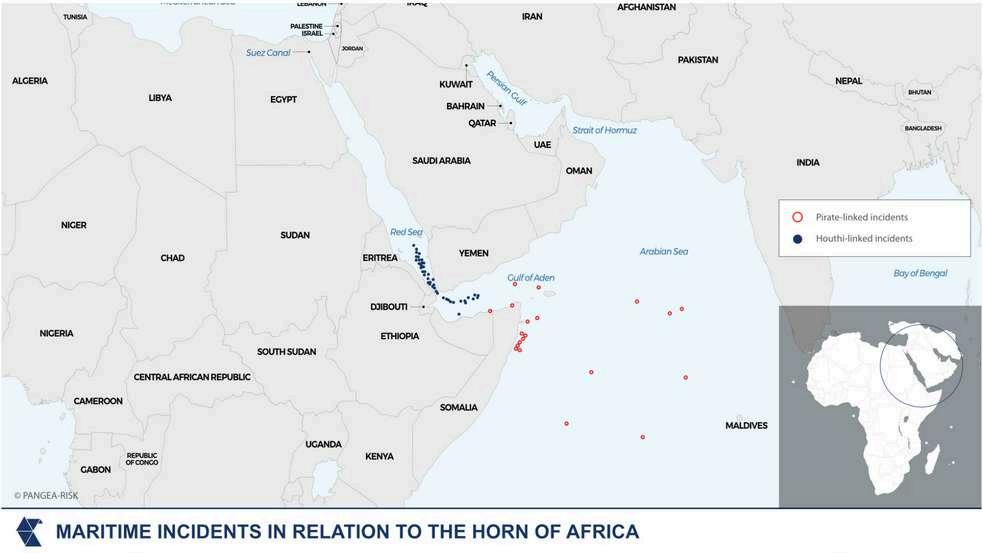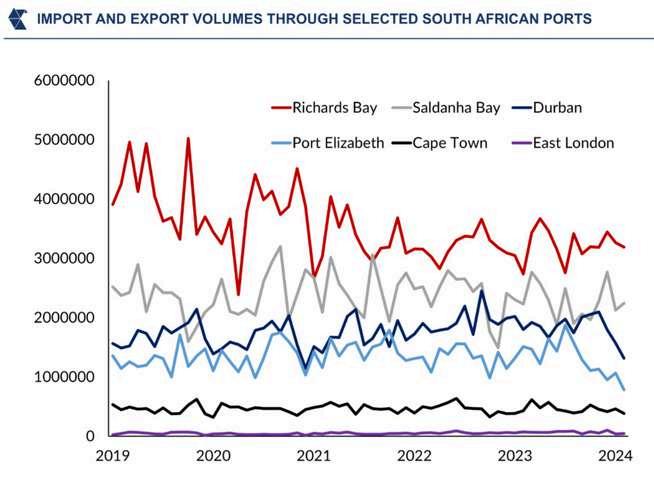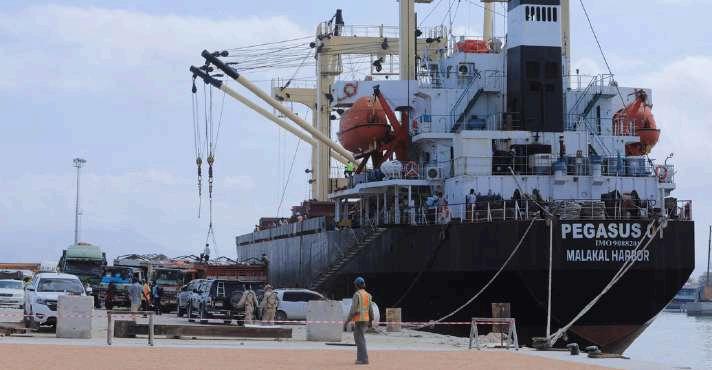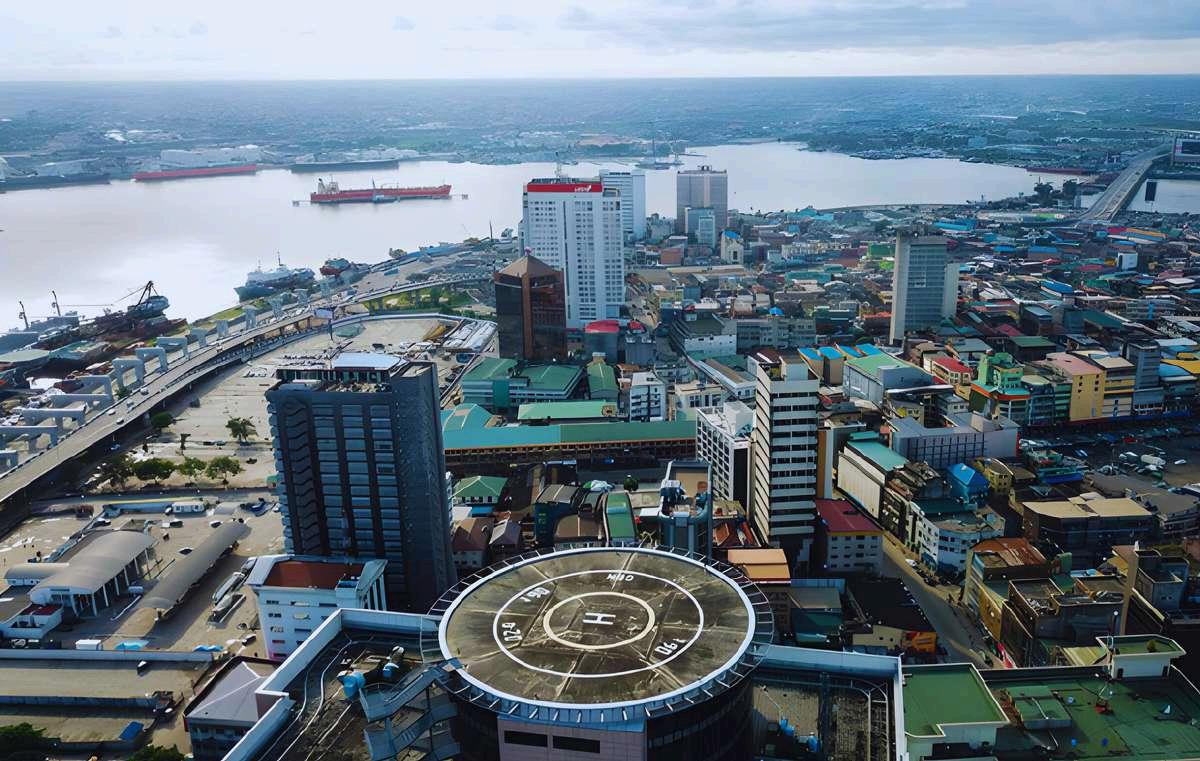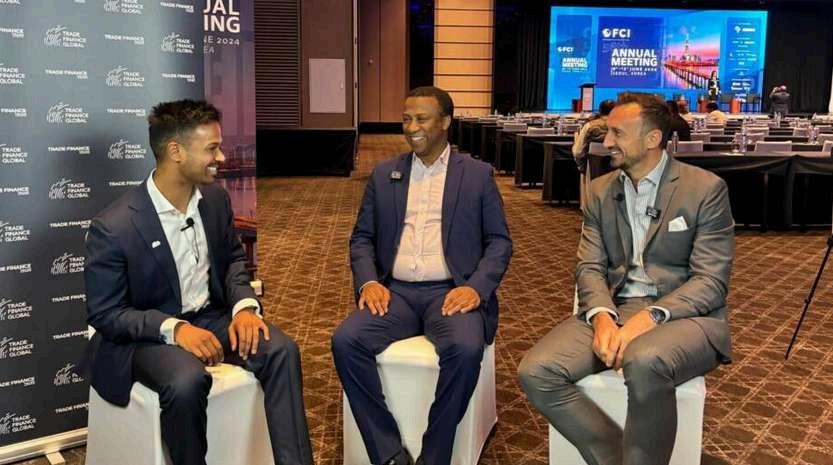THANKSTO
AkinkunmiAbolade
InwangAkpan
YoussefAhouzi
KhalilAlHarthy
NassourouAminou
RaviAmin
SilviaAndreoletti
RobertBessling
FedericoAvellanBorgmeyer
SeanBowey
TodBurwell
AndréCasterman
AbdelrahmanEl-Beltagy
AlexGray
MariyaGeorge
DoaaHafez
NealHarm
MohammedKabbaj
MichaelMatossian
JohnMiller
PeterMilne
VikramNair
SindisoNdlovu
AneelSabir
NeilShonhard
ShonaTatchell
RichardWulff
TFGEDITORIALTEAM
DeepeshPatel
BrianCanup
CarterHoffman
DuyguKarakuzu
KirtanaMahendran
SilviaAndreoletti
LAYOUTDESIGN
MariyaGeorge Co-founder&CEO Cleareye.ai
KhalilAlHarthy CEO
CreditOman
NigelTeoh
SindisoNdlovu
Website www.tradefinanceglobal.com
MagazineandAdvertising talks@tradefinanceglobal.com
EditorialandPublishing
©TradeFinanceTalksisownedandproduced byTFGPublishingLtd(t/aTradeFinance Global).Copyright©2024.AllRightsReserved. Nopartofthispublicationmaybereproduced inwholeorpartwithoutpermissionfromthe publisher TheviewsexpressedinTrade FinanceTalksarethoseoftherespective contributorsandarenotnecessarilyshared byTradeFinanceGlobal
AlthoughTradeFinanceTalkshasmade everyefforttoensuretheaccuracyofthis publication,neitheritnoranycontributorcan acceptanylegalresponsibilitywhatsoeverfor theconsequencesthatmayarisefromany opinionsoradvicegiven Thispublicationis notasubstituteforanyprofessionaladvice
Foreword-EmbracingthefutureoftradefinanceinAfricaandtheMiddleEast
Usingdeep-tiersupplychainfinancing’spotentialtounlockcapital
Thefutureoftradefinance:Leveragingtechnologytoovercome industrychallenges
Deepdive:ICISA’s2023industryresultsexplained
Navigatingsanctions:TheroleoftransshipmenthubsinWestern-made componentstoRussia
Riskmanagementintradefinance:HowaCITRcertificationcanhelp
TL;DR:FCIannualreporthighlightsstablegrowthandtechinnovationin2023
TheBaselEndgame:ImplicationsforUScreditinsurance
Q&A:ReducingrisksandboostinggrowthinSaudiArabiaandtheGCC
TDMeconomicinsight:CantheMiddleEastsavefreetrade?
efcom:Turbochargingthegrowthoffactoringandsupplychainfinancein MENAandIndia
TheroleofinnovativetechnologiesintransformingMoroccantrade
Navigatingtrade-basedfinancialcrime:ImpactofUCP600andISBP821Earticles
CreditOman:AdvancingOman’sglobaltradepresence
Tradetransactions:Removethepaper-keeptheprocess
UnderstandingLettersofCredit&TheUCP600RulesinNigeria
Levellingtheplayingfieldforfactoringaroundtheworld,wherewillfuture growthcomefrom?
BreakingdownthegrowthoffactoringandcollateralregistriesinAfrica Nigeria,Ghana,andSouthAfrica:Challengesandopportunitiesfor theSub-Saharangiants
Embracingthefutureof tradefinanceinAfricaand theMiddleEast
CarterHoffman ResearchAssociate TradeFinanceGlobal(TFG)
hepotentialofthisrichlydiverseregionisvast, andasrecentdevelopmentsshow,this potentialisbeingadeptlyfulfilled.Asthisedition willdemonstrate,itiscrucialtomonitortrade financedevelopmentsinAfricaandtheMiddle East,astheywilllikelyinformtheindustry’s trajectoryacrosstheworld
It magazinearoundthethemeof AfricaandtheMiddleEast. Encompassingaround2billion people-25%oftheworld’s population-thesegmentation thatwe’vechosenforthis editioncoversareaswith enormousnatural,cultural, political,andeconomic differences.
resources-includingminerals, metals,andagricultural products-whiletheMiddleEast ispredominantlyknownforits oilandnaturalgasreserves Africaishometothousandsof ethnicgroupswithdiverse languages,traditions,and religions,whiletheMiddleEast, althoughculturallyrich,has
fewerethnicandlinguistic groups,withapredominant culturalinfluenceofArab traditionsandIslam.
Africancountriesoftenhave variedpoliticalsystems, includingemerging democraciesandsome authoritarianregimes,whereas theMiddleEastfeaturesamix ofmonarchies,theocracies, andauthoritariangovernments
Fromatradeperspective, Africaisheavilyinfluenced byitscolonialhistoryand primarilyexportsrawmaterials, whiletheMiddleEast’strade isdominatedbyoilexports, withsignificantgeopolitical implicationsforglobal energymarkets
Aswediveintothisedition, ouraimistoprovidea comprehensiveunderstanding ofthecurrenttrendsandfuture prospectsfortradefinancein AfricaandtheMiddleEast From cutting-edgeinnovationsto shiftsinriskmanagement,we explorethekeytrendsthatare revolutionisingtheindustry
Unlockingpotential throughinnovation
The16thcenturyspicetrade puttheAMEAregioninthe centeroftheglobaleconomy Today,lettersofcreditarethe newclovesandcardamom,as AfricaandtheMiddleEasthave becomecriticalplayerswithin globaltradefinance.
Oneofthemostsignificant innovationsreshapingthe regionisthedigitalisationof tradefinanceprocesses,with traditionalmethodsbeing replacedbycutting-edge technologiessuchas blockchain,artificialintelligence (AI),andmachinelearning
Fintechsacrosstheregion arespearheadingthedrive towardsfinancialinclusion. Byofferinginnovativesolutions tailoredtotheuniqueneedsof localbusinesses,thesefirms canenableSMEstoaccess creditandotherfinancial servicesmoreeasily.Thisis particularlyvitalinaregion where,accordingtotheIMF,
MSMEscompriseupwardsof 90%ofthebusinessesbutoften facechallengesinsecuring traditionalfinancing.
Inmanyinstances,innovative approachestoage-old methodsaregainingtraction Deep-tierfinancing,which extendscredittosuppliers atmultiplelevelsofthesupply chain,improvesliquidity forsmallersuppliersand strengthenstheentiresupply chain,makingitmoreresilient todisruptions.AI-driven analyticsinsupplychain financecanalsohelpprovide real-timeinsightsintocash flowanddemandpatterns, enablingbusinessestomake moreinformeddecisions
It'snotjusttheprivatesector pushingtheinnovation agenda;governmentsand public-privatepartnerships areemergingaspowerful catalystsforchange,driving thedevelopmentand implementationofinnovative tradefinancesolutions.
InitiativessuchasSaudi Arabia'sVision2030and theUAE'sNationalInnovation Strategyarecreatinga conduciveenvironmentfor technologicaladvancements, aimingtodiversifyeconomies andreducedependenceon oilrevenues InAfrica,Mobile Moneytechnologycontinues togrowrapidly,reaching$14 trillionintransactionvalue in2023,a14%year-on-year increase.
Collectively,these advancementsarehelping topositionAfricaandthe MiddleEastasglobalhubs forinnovationandtrade.
Spotlightonrisk management
Effectiveriskmanagement remainsacornerstoneof successfultradefinance operations
AcrossAfrica,geopoliticalrisks -includingongoingconflicts andpoliticalinstability-impact thetradeandinvestment climates InJulyandAugust, youth-ledprotestsinKenya, Nigeria,andUgandaaboutthe costofliving,unemployment, andgovernmentcorruption haveledtowidespreadunrest andevenrealpolicychanges, withKenyanPresidentRuto retractinganunpopulartaxbill andreplacinghiscabinetasa result.
EconomicrisksintheMiddle Eastareparticularlytiedtooil pricevolatilityandsignificantly impactoil-dependent economies,suchasSaudi ArabiaandtheUAE.Sharp changesinoilpricescanhave reverberatingimplicationsfor governmentrevenuesand economicprospectsinthese nations
Despiteglobaldisruptionsand geopoliticalconflicts,African andMiddleEasterntrade
remainsresilient.Theregion's strategiclocationandgrowing consumptioninemerging marketspositionitasafuture globaltradehub.
TheICCTradeRegisterreport showsarobustcreditriskprofile fortradefinanceintheMENA region,butchallengessuch asinflation,interestrates,and supplychainvulnerabilities continuetoimpactthe businessenvironment.
Africa'sevolving tradelandscape
InAfrica,theriseofmobile bankingandfintechsolutions isenhancingcreditaccess andmanagement,particularly forMSMEs.
Governmentinitiativessuch astheAfricanContinentalFree TradeAgreement(AfCFTA) areexpectedtocreategreater opportunitiesforregionaltrade.
AfCFTA,whichcommencedin January2021,createdasingle marketof13billionpeoplewith acombinedGDPof$34trillion andisexpectedtoboost intra-Africantradebyupwards of50%byeliminatingtariffs onmostgoods.
opment estingin chasroads, mmunications, rade bankalso elopmentof reementsand uralreforms ecurityand alareas. vancements, n Trade non-tariff adequate ntinueto tradeacross ditionally, tiesbetween riskto and nomiesare estrongUS raisesthe nominated andimports, ancountries algoodsand cerbates uresand serves, tomanage ntain y hedollar financial mportcosts, tsustainability, neededrelief miesfacing
Aswepresentthisedition, ourgoalistoprovideyouwith adeeperunderstandingof thecurrenttrendsandfuture prospectsintradefinance, withaparticularfocuson AfricaandtheMiddleEast
Whiletheseregionscertainly havetheirdifferences,we hopethattheinsightsand analysesprovidedthroughout thesepagesbyourmany contributorswillhelpequipyou withanedgewhennavigating thiscomplicatedlandscape.
Wehopeyoufindthisedition bothinformativeandinspiring aswecontinuetoexplorethe possibilitiesoftradefinance inAfrica,theMiddleEast, andbeyond.
DeepeshPatel
EditorialDirector TradeFinanceGlobal(TFG)
Todiscussthepaperandbetterunderstand howDTSCFcanpromotefinancialstability,risk management,andsustainability,TradeFinance Global(TFG)spokewithTodBurwell,President andCEOofBAFT.
Deep-tiersupplychainfinance (DTSCF)isaninnovative financialsolutionwiththe potentialtounlockfinancingfor smallersuppliersdeepintoa supplychainbyleveragingthe creditriskoftheanchorbuyer.
Thelatestwhitepaperfrom BAFT(BankersAssociation forFinanceandTrade)and theAsianDevelopmentBank (ADB),“Deep-TierSupply ChainFinance:Unlockingthe Potential”,exploressomeof themoreopaqueaspects ofdeep-tiersupplychains.
Todiscussthepaperand betterunderstandhow DTSCFcanpromotefinancial stability,riskmanagement, andsustainability,Trade FinanceGlobal(TFG)spoke withTodBurwell,President andCEOofBAFT.
BAFTisamemberofthe GlobalSupplyChainFinance Forum(GSCFF),anorganisation establishedin2014todevelop, publish,andchampionaset ofcommonlyagreedstandard marketdefinitionsforsupply chainfinance(SCF).
TodBurwell
partiallyorfullypaid bydiscountofbenefit ofReceivable1
Receivesthebenefitof thefinancing*basedon theAnchorBuyer’sIPO
IPO=irrevocablepaymentobligation
*PricedbasedontheAnchorBuyer’screditrisk
Note:Allpartiesenterintoplatformtermsandconditions
Source:AsianDevelopmentBank,theBankersAssociationforFinanceandTrade,andSimmons&SimmonsJWSPte Ltd
DTSCFandits differencesfrom traditionalsupply chainfinance
DTSCF,avariationofthe traditionalformsofSCF,hasthe potentialtoreachmicro,small, andmedium-sizedenterprises (MSMEs)deepwithinsupply chainsbyallowingthemto financetheirpayablesbased onthecreditriskprofileofthe anchorbuyer
AccordingtotheBAFTandADB whitepaper,aprogrammust haveseveralcoreelementsto beconsideredDTSCF.
Forexample,itmustbe relatedtotradefinance, drivenbytheanchorbuyer’s supplychain,occurpostshipment,andbepredicated onanirrevocablepayment obligation
Burwellsaid,“DTSCFallows anoriginalreceivableto bediscountedinpartsat multiplelevels,withthebenefits transferringdownthechain”
Itisadistinctformof payablesfinanceastier1 suppliersaretypicallythe mainbeneficiariesofa payablesfinancestructure.
Tier-2 Supplier
Receivesthebenefitof thefinancingbasedon theAnchorBuyer’sIPO
Supplier
Fromabuyerstandpoint,DTSCF createsgreaterresilienceand transparencyinthesupply chainbycreatingvaluefor lower-levelsuppliersthrough reducedcostsandfraudrisks
Burwellsaid,“Inadeeptier structure,yourtier2supplier whohaspresentedaninvoice toyourtier1supplieralsogets theabilitytodiscountthat invoice,andthetier3supplier thathaspresentedaninvoice tothetier2supplier,andso forthdowntheline”
Fromafinancier’sperspective, withmanycurrentlynot financingMSMEs,thispresents awaytogrownaturalclient basesduetotheincreased visibilityofdeeper-tier suppliers
Thereisalsoanopportunityto linkESGreportingoncedeeper levelsofthesupplychainare connected.
Burwellsaid,“DTSCFcreates moreefficientoperations, whichcanhelplowercosts. AsweseemoreESGcreeping intothestructureofsupply chains,itenablesthese lower-tiersupplierstoachieve complianceandreporting requirementsinthecontext ofthatsupplychain.”
Coreimplementation challenges
DTSCFbuildsonseveralofthe coreelementsoftraditional SCF.Unfortunately,inadequate securedfinancinginfrastructure haspreventedthewidespread adoptionofSCFinmany markets Withoutthatfoundation, manymarketsarenotprepared foradeep-tieralternative.
Currencyimpediments arealsofactors Whiletier1 suppliersoftendealinmajor tradablecurrencies,suppliers furtherdownstreamarelikely toworkwithlocalcurrencies thatcanbesubjecttotight FXcontrolregimes
Burwellsaid,“Onebig challengeishavingwilling participants.Youaredependent oneveryoneinthesupplychain tobeopentobeingtransparent witheveryoneelse.
Youstartwiththeanchor buyer,butifyouarethetier1 supplier,youneedtobewilling toopenupaboutyourown supplychaintoyourbuyer”
Accordingtothewhitepaper, complexandonerous onboardingprocedures alsohinderthescalabilityof supplier-ledfinancingofferings Thecostandeffortrequiredto onboardsuppliers,particularly MSMEs,canbeprohibitivefor lenders,makingitdifficultto extendfinancingtothedeeper tiersofthesupplychain.
Despitethechallenges,there arecasestudiesofsuccessfully implementedDTSCFprograms
Successful implementation casestudies
OneoperationinChina hadreached9levelsdown thesupplychain,reaching$70 billionoverseveralyears,with theaverageinvoicetotalling $77,000
Burwellsaid,“Thesmallest invoicewecameacrossinthis programwas$15.Traditionally, thiswouldbeunthinkable becausemanyfinanciersare notinterestedinadealifthe ticketsizesarethatsmall.But thepointofthisistoprovide valueattheMSMElevel,where youwillhavesmallerand smallerticketsizes.Ifitcan workfora$15invoice,itcan workforanything.”
Anotherexampleisabank withabout1000supplierson ablockchain-basedplatform thatreducedonboardingtime by75%.Giventhatmany considerthesupplier onboardingprocessalone responsibleforholdingback SCFscaling,thisiscritical.
Burwellsaid,“Havingtheright technologyandthestructure whereeachofthetiersare onboardingtheirownsupplier networks;ifyoucanreduce onboardingtimeby75%,you havesomething”
Nextstepstoscale andfullyrealise opportunities
TocontinueadvancingDTSCF, thetwomostimportantnext stepsareeducationand developingconsistentlegal frameworks
Ontheeducationside,the industrymustcontinueto engagewithandcommunicate DTSCFstructuresandbenefits
Themoreorganisationsknow aboutautility,themoretheyuse it,andthemoreinnovationwill beaddedtoexistingstructures.
Onthelegalside,itwillbe importanttocreateconsistent legalframeworkstoenable DTSCFonacross-borderbasis Whilesomestructuresare basedoncontractrights withirrevocablepayment undertakings,othersarebased onnegotiableinstruments.
Burwellsaid,“Theheavylifting forusisgoingtobelooking atthelegalframeworksand howwecanbetterenable cross-borderlegalframeworks tostandardisetheclient agreementsandonboarding processestoachievescale.”
MariyaGeorge Co-founder&CEO Cleareyeai
Tradefinanceisatacriticaljuncture.Withan ever-growing$2.5trilliontradefinancegapand over4billionpiecesofpapercirculatinginthe globaltradeecosystem,theindustryisripefor digitaltransformation.
Tradefinanceisatacritical juncture.Withanever-growing $2.5trilliontradefinancegap andover4billionpiecesof papercirculatingintheglobal tradeecosystem,theindustry isripefordigitaltransformation
Financialinstitutionsand corporatesalikemustadopt technologicaladvancements toremaincompetitiveand compliant Thoughtherehas beenadmirableprogressin recentyears,theindustryneeds tocontinuetoinnovateandnot idlywaitforsomeoneelseto taketheinitiative.
ClearTrade®: Highlightingthe imperativefordigital transformationin tradefinance
Cleareye’splatform, ClearTrade®,isdesigned totransformtradefinance operationsbyaddressingkey challengesandproviding comprehensivesolutions
Theplatform’sdigitisation moduleisatitscore,converting unstructuredtradedocuments
intostructureddatasetsusing advancedOpticalCharacter Recognition(OCR),Machine Learning(ML),andNatural LanguageProcessing(NLP) algorithms.
Thisprocessnotonlyboosts operationalefficiencybutalso significantlyreducestherisk ofhumanerror.
Thedigitisationoftrade documentsiscrucialforseveral reasons Firstly,itstreamlines processessuchassanctions screening,TradeBased MoneyLaundering(TBML) assessments,workability checks,anddocument examination.
Thesedatasetscanbe seamlesslyintegratedinto tradeback-officesystems, enhancingoperational efficiency ClearTrade®’s classificationandextraction accuraciesexceed93%and 88%,respectively,setting newstandardsintheindustry
Furthermore,thesanctions screeningmodulewithin ClearTraderefinestheprocess bycategorisingnounsintrade documentsintocorporate entities,vessels,locations, andindividuals
Thisrefinementreduces falsepositivesbyupto70%, optimisingproductivityand efficiency.Thecompliance andTBMLmoduleintegrates avarietyofchecks,including maritimeassessments andhigh-risktransaction evaluations,aligningwith regulatoryguidelinesto ensurecomprehensiverisk management.
Addressingoperational challenges,compliance andESG
Tradefinanceisamanually intensiveindustry,burdened bypaperandlacking standardisation Banksface significantoperational challenges,includingpotential lossesfromhumanerrorand ashrinking,highlyspecialised workforce
Additionally,theincreasing complexityofregulatory landscapesdemands heightenedvigilanceand auditability,makingmanual compliancescreening impracticalandcostly
Cleareye’ssolutionsare designedtoalleviatethese painpoints TheClearTrade® platformautomatescritical complianceprocesses,from redflagchecksandvessel trackingtoBillofLading validation
Thisautomationreduces theoperationalburdenon staff,decreasestherequired headcountformaintaining compliance,anddelivers substantialcostsavings.
Inadditiontooperational efficiencyandcompliance, thereisaclearneedto addressESGcompliance intradefinance
WhileESGhasbeenanareaof focusinrecentyears,thereare betterandmoreefficientways toapproachit
ClearTrade®’sESGmodule enablesbankstoassess transactionsfromanESG perspective,trackcustomer trends,andintegrateESG principlesintotheiroperations
Thispioneeringapproachsets thestageforenhanced ESGcompliance,fostering responsiblebusinesspractices forbothcorporatesandbanks.
Theplatformevaluates transactionsbasedon parameterssuchasbuyer, seller,distribution,anduseof proceeds.Thisenablesbanks toassesstransactionsfrom anESGperspectiveandtrack customertrendseffectively
ByintegratingESGprinciples intotheiroperations,financial institutionscanensurethey areconductingESG-compliant businessintradefinance.
Cleareye’sinnovativeapproach toESGcomplianceintrade financedemonstratesits commitmenttopromoting sustainableandresponsible businesspractices
Thepathforward: Collaborationand innovation
SinceitsalliancewithJ.P. MorganinSeptember2022, Cleareyehasdeepenedits integrationwithinthetrade financeindustry. Collaborationswithtrade back-officeproviderslike FinastraandSurecomp, andcloudproviderssuchas IBMandMicrosoft,havehelped shapeindustrystandardsand shareknowledge
Workingwithothercloudand technologyproviders,and majorglobalbanks,ensures thatmultipleindustriesand perspectivesallowsforthe mostcomprehensive collaborationtooccur.
Thisstrategicapproach involvesthoroughmarket researchanddirect engagementwithTrade OperationsandCompliance teamsacrossdifferentclients
Forexample,byunderstanding thespecificrequirementsof financialinstitutions,Cleareye candevelopsolutionsthatnot onlyaddresscriticalcustomer needsbutalsomaximise efficiencygainsandmitigate compliancerisks
CaseStudy: Cleareye’sintegration withglobalbanks
Theseinnovationsarenot hypotheticaleither,therehave beenmultipleconcrete examplesofClearTrade®’s impactwithinmajorglobal banks
Specifically,ClearTrade®was usedtoenhancedigitisation, compliance,andautomated documentexamination moduleswithinthebank
Theresultsweretransformative andhighlightedthereal-life efficacyofCleareye’ssolutions inaddressingtheindustry’s challenges
Detailsofthecase studyarebelow:
DigitisationModule
TheDigitisationModuleof ClearTrade®ingeststrade documentimagestoextract relevantdata,eliminating manualentryandrekeying Additionally,digitisation includesnounextractionfrom documentsandde-duplication, enablingeffectivesanctions screeningforrestrictedparties, vessels,andhigh-risklocations.
Benefits:
Enhancedprocessingpower: Thebankfuture-proofed itstradeoperationswith advancedautomation technology,enhancing processingpowerata fractionalcostcompared tolegacysystemsor hiringadditionalresources
Competitiveadvantage: Leveragingtheplatform’s machinelearningcapabilities, trainedonalargevolume oflettersofcredit(LCs)and documents,resultedin reducedfalsepositivesand alowerriskofhumanerror.
Highconfidencedata extraction:Achieveddocument classificationandextraction ratesof98%and93%, respectively,comparedtothe averageof65%observedin thelegacysystem,ensuring reliabledataextractionat highconfidencelevels.
Costsavings: Realised$1millioninsavings oninternaltechexpensesfor dataextractionand$300,000 savingsforsanctionsscreening efficiencyviareductionoftraffic toexistingenterprisesanctions screeningsoftware.
Costavoidance: Avoided$1millionincosts forinternalcompliancebuild
TheClearTrade®Compliance Moduleutilisesthedata extractedfromtheDigitisation Moduleandemploysaseriesof redflagchecks,vesseltracking, BillofLadingvalidation,and otherriskcontrolmeasuresto ensureregulatorycompliance foreachtransaction
Benefits:
Operationalefficiency:Enabled a70%decreaseintherequired headcountforupholdingglobal marketstandardsinthebank’s tradeoperationsfunction. Compliance&TBML Module
Annualsavings:Achieved annualsavingsof$13million oninfrastructure,maintenance, andenhancementsfor complianceandauto documentexamination,plus $1millioninoperationalsavings forcomplianceandauto documentexamination
Tradefinanceisatacrossroads, withdigitaltransformation offeringapathwaytoenhanced efficiency,compliance,and sustainability.TheClearTrade® platformexemplifieshow advancedtechnologycan addresstheindustry’smost pressingchallenges,from digitisingtradedocuments toautomatingcompliance processesandintegrating ESGprinciples.
Themessageisclear:the timetofuture-prooftrade financeisnow
TheClearTrade®AutoDoc ExamModuleleverages advancedtechnologies tointerpretrulesand conditions,validatingthem againstLCpresentation documentstooptimise tradeoperations.Itcomes preconfiguredwithtrade financerulessuchasthe UCP,ISBP,andURC,offering flexibilitytocustomise therules.
Financialinstitutionsmust embracetechnological advancementstostay competitive,compliant, andpreparedforthefuture
Byleveragingadvanced technologiesandfostering industrycollaborations, Cleareyeisnotonlysimplifying tradefinancebutalsosetting newstandardsforefficiency, compliance,andsustainability.
TradeFinanceGlobal(TFG)
2.3
Deepdive: ICISA’s2023industry resultsexplained
TradeFinanceGlobaldivesintothereport’s findingsandfeaturesinsights,speaking exclusivelytoRichardWulff,ExecutiveDirector ofICISA.
heInternationalCreditInsurance &SuretyAssociation(ICISA)has releasedits2023industryresults, highlightingkeytrendsand developmentsinthetradecredit insuranceandsuretybond markets
ICISArepresents95%ofthe world’sprivatecreditinsurance business,withnearly€32trillion intradereceivablesinsured andbillionsininfrastructure guaranteed.
TradeFinanceGlobaldives intothereport’sfindingsand featuresinsights,speaking exclusivelytoRichardWulff, ExecutiveDirectorofICISA
ICISAplaysacrucialrole insupportingglobaltrade andeconomicdevelopment.
Bybringingtogether theworld’sleading creditinsuranceandsurety companies,ICISAensures theprotectionoftrade receivablesandguarantees constructionandservice projectsglobally.
Theassociationservesas asafeharbourfortrade andinvestment,providing securityandstabilityamid economicuncertainties.
RichardWulff
Keyfindingsfromthe 2023industryresults
The2023industryresultsreveal severalimportanttrends:
SuretyHighlights:
Insuredexposureincreased by7.7%,reaching€1.4trillion.
Premiumswrittenroseby 89%to€69billion
Claimspaidsurgedby 68.5%,totalling€2billion.
Theriseinpremiumswritten reflectsincreaseddemand forsuretybonds,which provideguaranteesforthe completionofconstruction andinfrastructureprojects. Thegrowthininsured exposureindicatesa broadermarketacceptance andrelianceonsurety productstomitigaterisks inthesesectors(ICISA).
TradeCreditInsurance Highlights:
Insuredexposuregrewby 45%,totalling€32trillion
Premiumswrittenincreased by5%,amountingto€8.2 billion.
Claimspaidroseby114%, reaching€32billion
Theincreaseintradecredit insuranceexposureand premiumshighlightsthe criticalroleofthese productsinprotecting businessesfromtheriskof non-payment,ensuring liquidityandfinancial stability(ICISA)
Suretybondsplayacritical roleinguaranteeingproject completionandprotecting againstcontractordefault.
Theincreaseinsuretyclaims paid,whichsurgedby685% to€2billion,highlightsthe difficulteconomicconditions contractorsandother principalsfacetoday.Equally, ithighlightsthevaluethat suretiesprovidetothe economybymitigatinglosses whendefaultsoccur
Similarly,thetradecredit insurancesectorhasseen substantialgrowthreflecting thedemandfrombusinesses forprotectioninuncertain times
Tradecreditinsuranceprotects businessesfromtheriskof buyernon-payment,ensuring thatsuppliersreceivepayment evenifthebuyerdefaults
Thisinsuranceiscrucialfor maintainingcashflowand
allowingbusinessestoextend morefavourablecreditterms totheircustomers.
Increasesinbothinsured exposureandclaimsforboth TCIandsuretymarketsclearly demonstratethechallenging economicenvironmentwe facewheredefaultsaremore frequent.Stronglycapitalised andstableTCIandsurety marketsareessentialfor economicresilienceinsuch periods(ICISA)
Impactof macroeconomicfactors
Theglobaleconomic landscape,markedbyhigh interestrates,risingcosts, theenergytransition,and geopoliticaltensions,has significantlyinfluencedthe tradecreditinsurance marketin2023
Wulffsaid,“Thereisnodoubt thattheriskawarenessof clientshasincreased.Therisk ofinsolvencyhasincreased notablyoverthepastcouple ofyears,leadingtoasteep increaseinbusinessfailures withintheOECDarea.Thishas manycausessuchasinterest rateincreasesandsupplychain disruptionsduetopolitical events(exportsfromUkraine, theIsrael-Hamasconflict impactingRedSearoutesetc) Thishasputthespotlight onourindustryandthe professionalisminunderwriting riskforthebenefitofitsclients.”
Technological innovationsintrade creditinsurance
Theriseof‘Insurtech’, includingAIanddigital platforms,hastransformed thetradecreditinsurance sectorbyimprovingrisk assessmentandoperational efficiency.
Wulffsaid,“Wesee theimpactonboththe product/distributionsideas wellasforinternalprocesses.
Initiativesofinsuring businesstransacted onB2Bplatformsfitinto thefirstcategory
IntegratingAIintounderwriting andclaimsprocessesfits intothesecond.Thesector willcontinuetodevelopinline withtheavailabilityofnew technologiestooptimizecover andspeedtoservecustomers inthebestpossibleway”
EnvironmentalandSocial Governance(ESG) initiatives
ICISAmembersareincreasingly integratingESGprinciplesinto theiroperations,reflecting agrowingawarenessof sustainabilityinfinancial services.
Wulffsaid,“Sustainability principlesareincorporated anddeeplyrootedintoour members’business From underwritingguidelines(which sectorstopromote,whichto avoid)toinvestmentpractices. Anditisnotsimplyamatter ofenvironmentalimpact ICISA membersareconsciousofthe needtomonitorhumanrights, governanceandsocialissues withinthevaluechainthey areinvolvedin.
Itisnottobeunderestimated thatactingresponsiblyalsohas animpactontheattractiveness ofoursectortonewtalent
Challengesinthe suretymarket
Thesuretymarketfaces challengessuchasregulatory hurdlesandmarketdemand fluctuations ICISAmembers areactivelyaddressingthese issuestomaintainmarket stability.
Onthecurrentchallenges facingthesuretymarket,Wulff said,“Theinflationarypressures thatwehaveseenhavehada majorimpactontheexpense baseofcontractors,amajor cohortofclientsofoursurety members.”Thishasimpacted thepricesofbuildingmaterials aswellaswagesandlabour availabilitygenerally
“Thishasweakenedmany contractors’balancesheets, makingthemmorevulnerable tonegativesituationswhere theycannolongerfulfilbonded contracts Ourmembers haveworkedtirelesslytofind solutionsthatarepalatable forthebeneficiaryofthebond (whowantsthecontracted workdone).
Onalonger-termhorizon, andespeciallyinEurope, amultitudeofregulatory, politicalandeconomicfactors limitopportunitiestostart newconstructionprojects Thisistothedetrimentofthe constructionsectoraswell astothepublicatlarge,for instanceforpeoplelookingfor anaffordableplacetolive.”
Futureoutlookfor tradecreditinsurance
Lookingahead,thetradecredit insurancemarketispoisedfor growth,drivenbyemerging marketsandtechnological advancements However, potentialrisksremain,requiring continuousinnovationand adaptation.
Wulffsaid,“Wearevery optimisticforthefuture. Ourmembershaveshown themselvestoberesilient andtobeabletoservetheir clientsinafast-changing environment.Riskswillremain andpopupfromtime-to-time, butthisiswhatwedobest.
Thisisourreasonforexistence –tomitigateriskandtohelp clientsrebuildafterloss events.”
ICISAhaslaunchedthe Women’sSuretyNetworkand theWomeninCreditInsurance initiatives,reflectinga commitmenttodiversity andinclusionintheindustry.
Theseprogrammesaimto supportandpromotewomen inthefield,fosteringamore inclusiveindustryenvironment
Howwillindustryinitiatives actuallyimpactgender diversity?Wulffsaid,“Attracting andretainingtalentto ourindustryisvitalforits developmentandtheability todelivermaximumvalueto customersandshareholders alike Uniformityintalentleads tosuboptimaloutcomes. Genderdiversityinitiativeslike WICIandWSNaddresspart ofthis Weseeourmembers hiringdiversetalent,andthese initiativessupportthem”
ICISAwelcomedthreenew members:Export-ImportBank ofThailand,Interamerican,and RenaissanceRe.
Theseadditionsstrengthen ICISA’snetworkandenhanceits capacitytosupportglobal tradeandinvestment:
Export-ImportBankof Thailand:Playsakeyrolein drivingThailand’stradeand investmentstrategies.
Interamerican:Aleading insurancecompanyin Greece,enrichingour networkwithexperienceof Greekandneighbouring suretymarkets
RenaissanceRe:Basedin Bermuda,addstothe expertisewithinICISAwith aninnovativefocusonrisk managementandfinancial solutions(ICISA)(ICISA)
Supportingthe globaleconomy
Despiteeconomicchallenges, ICISAmemberscontinueto provideessentialsupport totheglobaleconomy.
Theincreaseintradecredit insuranceexposureandsurety claimspaidreflectsthe industry’sresilienceandits criticalroleinmitigatingrisks,
ensuringliquidity,andfostering economicstability.
The2023ICISAindustryresults underscorethepivotalroleof creditinsuranceandsurety bondsinfacilitatingglobal trade
Astheindustrynavigates economicchallengesand embracestechnological innovations,ICISAmembers remaincommittedto supportingeconomic developmentworldwide.
RaviAmin
TradeComplianceSubject MatterExpert
S&PGlobalMarketIntelligence
DeepeshPatel
EditorialDirector
TradeFinanceGlobal(TFG)
Navigatingsanctions: Theroleoftransshipment hubsinWestern-made componentstoRussia
TodiscussS&PGlobalMarketIntelligence’s whitepaper,“Aretransshipmenthubs facilitatingthemovementofWestern-made componentstoRussia?”TradeFinanceGlobal’s DeepeshPatelspokewithRaviAmin,Trade ComplianceSubjectMatterExpertatS&PGlobal MarketIntelligence.
Sanctionsandfrosty traderelationshavebeen aconsistentthemeof internationaltradeinthepast half-decade,butevenmore soaftertheRussianinvasion ofUkraineon24February 2022.
Sincethen,Western governmentshave attemptedtocurtaildirect andindirecttradewithRussia, bothtoimposeeconomic punishmentanddiminish Russia’sabilitytoproduce militaryequipment.
However,theworldof internationaltradeisoften quiteopaque,andwhile governmentscanintroduce sanctions,theireffectiveness isnotguaranteed
TodiscussS&PGlobalMarket Intelligence’swhitepaper, “Aretransshipmenthubs facilitatingthemovementof Western-madecomponentsto Russia?”TradeFinanceGlobal’s DeepeshPatelspokewithRavi Amin,TradeCompliance SubjectMatterExpert,atS&P GlobalMarketIntelligence.
Effectivenessandevasion ofsanctionsonRussia
Sinceearly2022,Western governmentshaveimposed numerousroundsofsanctions onRussianeconomicactivity.
AsofJune2024,theEUalone hasimplemented14roundsof sanctionsagainstRussiasince theirinvasionofUkraine
Aminsaid,“Theideaistorestrict Russia’seconomy,stopthem fromexportinggoodsand makingmoney,andthenstop theimportofgoodsintoRussia tostoptheperforationoftheir warefforts”
Initially,thefocuswason itemsdirectlysupporting Russia’smilitary,suchas semiconductorsandelectronics, buteventuallyexpandedto includecivilianluxurygoods.
Theitemsweredividedinto differenttiers,rangingfrom 1-4b,whichessentiallywasan augmentationof50HScodes HSCodes,“HarmonizedSystem codes”,arethesix-digit numbersusedinternationally toclassifygoodsforcustoms purposes
AdministeredbytheWorld CustomsOrganization(WCO), theycover98%ofgoodsin internationaltradeandover 5,000commodities.
CustomsauthoritiesuseHS codestoapplytariffsandtaxes togoodsandkeeptrackof importsandexports.
Despitetheseextensive measurestosanctionmaterials basedontheirHScodesand differenttiers,Russiahasbeen abletoworkaroundsomeof
Market Intelligence
Tier1:IntegratedCircuts,HSCode854231
Tier2:Wirelesscommunicationsandsatelliteradio navigation,HSCode851762
Tier3A:Discreteelectroniccomponents, HSCode850440
Tier3B:Bearings,opticalandnavigationequipment, HSCode848220andHSCode880730
Tier4A:Electronicmanufacturingequipment, HSCode9030andHSCode9030
Tier4B:Computernumericalcontrolmachinetools, HSCode84581
thesanctions,maintaininga relativelystabletradeprofile.
Aminsaid,“They’veredirected theirexportstocountriesinAsia andareimportinggoodsfrom neighbouringcountriesthat haven’timposedsanctions.
Overall,thetradeprofile isrelativelyconsistentpreinvasionversuspost-invasion; they’vejustuseddifferent countriestoacquireorsell thosegoods.”
Neighbouringcountries particularlythosewithin theCommonwealthof IndependentStates(CIS), suchasKazakhstan,Armenia, andUzbekistan have significantlyincreasedtheir tradewithRussia.
Thesecountriesarenotonly relyingongoodsfromthe UnitedStateseither,though asignificantamountofthe importsdostemfromthere
Countriesthathaveincreased tradewithRussiasincethe invasionhavealsobeen increasingtheirimportsfrom theEU
Aminsaid,“Russia’strading partnersarepotentially importingmaterialsfromother countriesaswellwithinEurope. ”
Thisunderscoresacritical challenge:whilesanctions disruptdirecttradechannels, theyoftenfailtoeliminate economicinteractionsentirely andmerelydisplacetradeflows tootherwillingpartners.
ThedatafromS&PGlobalMarketIntelligencecorroboratesthisadaptivebehaviour
Figure1:ExportstoRussia,2022vs.2023,%change($value)
DatacompiledMarch13,2024
Source:GlobalTradeAnalyticsSuite,aproductofS&PGlobalMarketIntelligence ©2024S&PGlobal
Figure2:ImportsfromRussia,2022vs.2023,%change($value)
DatacompiledMarch13,2024
Source:GlobalTradeAnalyticsSuite,aproductofS&PGlobalMarketIntelligence ©2024S&PGlobal
ItshowsthatcountrieswithoutsanctionsonRussiahaveseenincreasedimportsofgoodsthatcould berepurposedformilitaryuse.Thistrendisparticularlynotableintheelectronicsandmanufacturing sectors,wheregoodsinitiallyintendedforcivilianuseinintermediarycountriesaresubsequently funnelledintoRussia.
Roleoffinancial institutionsandthe supplychainin compliance
Theresponsibilityforenforcing sanctionsextendsbeyond governmentagencies,deeply involvingfinancialinstitutions andthebroadersupplychain
Aminsaid,“Therehasbeen alotoffocusonfinancial institutionsfrommultiple regulatorsaroundtheworldin thepast Primarily,theonushas onthemtostoptheflowof sanctionedgoods,andthey wouldhavehadtoadapttheir complianceproceduresto incorporateanychanges.” Thisinvolvesacomprehensive reviewoftradeembargoes, exportcontrols,andtracking goodsthatmayhavemilitary applications.
Forinstance,banksmust performenhanceddue diligenceifatradetransaction involvesacountryidentifiedas atrans-shipmenthubfor Russiangoods.
Aminsaid,“Ifthereisatrade thatisgoingfrom,say,theUS to,say,Kazakhstan,for example,younowknowthat thereiselevatedriskbasedon theproximityofKazakhstanto Russia,basedonthedatathat we’vejustshown.Eventhough Kazakhstanisnotasanctioned country,whyisthatcompany nowwantingtotradewith Kazakhstanwherepreviously theymightnothave?Doesthe trademakeeconomicsense?”
UnderUSAExecutiveOrder14114, thescopeofthesesanctions
isnolongerlimitedtofinancial institutionsintheUnitedStates. Theorder,signedbyUS PresidentJoeBidenin December2023,expandsthe abilitytoimposesanctionson foreignfinancialinstitutions engagingintransactions involvingRussia’smilitaryindustrialbase.
Whiletheburdenhas traditionallysatwithfinancial institutions,entitiesacrossthe entiresupplychainnowhave anincreasingroletoplayin maintainingcompliance.
TheUSAhasalsoimposeda Quint-SealNotice,which mandatesthatallparties involvedinthetradeprocess fromfinancierstoshippers mustensurethatthegoods beingtradeddonotcontravene internationalsanctions.
Aminsaid,“It’snolongerjust thefinancialinstitutionthat’s responsible,it’severybody”
Futureprojections andstrictersanctions
Lookingahead,thelandscape ofsanctionsagainstRussiais poisedtobecomeevenmore stringent
Aminsaid,“Aslongasthe conflictcontinues,sanctions willcontinue Whatwillend uphappeningisthey’llstart targetingnewsectorsofthe Russianeconomy They’ve alreadydoneagriculturetoa degree,sanctioningfertilisers, timber,andthelike They’ve alreadytargetedtransport They’vealreadytargeted defence They’llfindnewways, newitemstosanctionRussia withuntiltheconflictends”
Inearly2024,theUnitedStates announcedanewroundof over500sanctions,targeting cardpaymentsystems,military institutionsandfinancial institutions Afterthisround, theUnitedStateshas sanctionedover4,000entities connectedwithRussiasince thestartoftheinvasion.
Additionally,the14thround ofsanctionsbytheEUtargets sectorslikeliquefiednatural gas(LNG)andimposesstricter controlsonvesselshistorically linkedtoRussianports.
Theinternationalcommunity remainssteadfastinitsefforts tocurtailRussia’seconomic andmilitarycapabilities throughincreasingly sophisticatedandtargeted measures.
Whilethesemeasureshave undoubtedlydisrupteddirect tradechannels,Russia’s strategicredirectionoftrade highlightsthechallengesof enforcingacomprehensive sanctionsregime.Assanctions becomemorestringent andexpansive,theneedfor coordinatedeffortsacross alllevelsoftradeandfinance becomesparamount.
Consultant
AlexGray
PeterMilne DirectorofTradeand
TransactionBanking
LondonInstituteofBanking andFinance(LIBF)
TheICCestimatesthatifeven1%ofthe$5 trillionglobaltradefinancingmarketis susceptibletofraud–andassumingonly10%of thosetransactionswillleadtolosses–thisstill meanstherewillbeanestimatedannualcost ofaround$5billionintotalbusinessdisruption.
Internationaltrademakes theworldgoround
Theextremevastnessofthis industryispreciselywhat makesitsofascinatingand, atthesametime,sorisky Itis easytoseehowvariousrisks canarisealongthe internationaltradeprocess. Rangingfromphysical commoditytradingtoshipping, storage,distribution,andthe finalsale,theprocesscango wronginmanyways
AccordingtoaPWCstudy across53countries,over51% ofcompanieshaveexperienced somesortoffraud
TheICCestimatesthatifeven 1%ofthe$5trillionglobaltrade financingmarketissusceptible tofraud–andassumingonly 10%ofthosetransactionswill leadtolosses–thisstillmeans therewillbeanestimatedan annualcostofaround$5billion intotalbusinessdisruption
Thatiswhyunderstandingrisk and,moreimportantly,learning tomitigatethatriskaresomeof themostimportantaspectsof workingininternationaltrade.
Tolearnmoreaboutrisks andriskmanagement,Trade FinanceGlobal(TFG)spoke withPeterMilneandAlexGray, DirectorofTradeand TransactionBankingatthe LondonInstituteofBanking andFinance(LIBF).
Internationaltradebrings manyinherentrisks
Theindustry’scomplexity meansrisksarealwayslurking aroundthecorner Eachstep intheintricatetradeprocess–fromphysicalcommodity tradingtoshipping,storage, distribution,andthefinalsale–holdspotentialpitfallsthatcan jeopardisetransactions.
Understandingtheserisks andhavingplansinplace toaddressthemshould theyarise,canmakealarge difference.
Graysaid,“COVID-19 differentiatedbanksthat werepreparedforcertain risksfromthosethatweren’t Thebanksthathadthose continuousemergency plansinplacewereable toadaptquickly. ”
Traditionalrisks,such ascreditrisk(where acounterpartydefaultson payment),performancerisk (whereacounterpartyfails tofulfilitscontractual obligations),and sovereignrisk(involving acountry’spoliticaland economicinstability),remain ever-presentdangers,but newerrisksarealsoemerging.
Contemporaryissueslikecyber riskhavegainedprominence intheindustry Cybersecurity breachescancompromise sensitivetradedataand disruptoperations,posing severethreatstoallparties involved
Additionally,theincreasing emphasisonESGfactors introducesnewdimensions ofriskthatmustbe navigatedcarefully.
Graysaid,“Morepeople–even thosenotintheindustry–are becomingmoreawareofthose risksthantheywouldhave beeninthepast.It’sbecoming alotclearerthattherisksin tradeaffectpeopleeveryday”
Giventheindustry’sevolving risknature,theLIBFhas releaseditslatestcertification, theCertificateinInternational TradeRisk(CITR).
TheCITRfortrade financeprofessionals
TheCITRisaLevel4certificate designedtoequiplearners withspecialistexpertisein internationaltraderisk.
Theprogramoffersa comprehensiveframeworkfor professionalsseekingtomaster theintricaciesoftraderisk managementandequips participantswiththeskills toidentify,understand,and mitigatetheseriskseffectively
TheCITRprogramcoversboth traditionalandcontemporary risksandistailoredtomeetthe needsofprofessionalsat differentstagesoftheircareers
Graysaid,“Theaudience,for mostofourqualifications,is splitintotwogroups.There arethepeoplewhohavethe knowledgealreadyandneed
awaytodisplayit,andthere arethepeoplewhowant tolearnaboutit”
Forthosefamiliarwithtrade risk,theCITRformallyrecognises theirexpertise,enhancingtheir credentialsanddemonstrating theirproficiencytoemployers andpeers Fornewcomers,it providesasolidfoundation, equippingthemwiththetools andunderstandingneededto dealwithtraderisks.
Notably,theCITRprogram focusesonpractical applications,emphasising real-worldscenariosand casestudies,andallowing participantstoapplytheoretical conceptstoactualtrade situations
Thispracticalemphasisensures thattheknowledgegainedis comprehensiveanddirectly applicabletoday-to-day professionalactivities.
Adaptabilityand internationalscope oftheCITRprogram
Theriskspresentin internationaltradearealways changing,whichmeansthat astrongtraderiskeducation offeringmustbeableto changejustasfast
Technologicaladvancements likeblockchainandartificial intelligence(AI)are transformingtradefinanceand introducingnewrisksthatmust bemanaged
TheCITRprogramisdesigned tokeeppacewiththese developments,incorporating thelatesttrendsandemerging risksacrossarangeofglobal marketsthroughitsupdatable onlinedeliveryformat.
Milnesaid,“Thebeauty aboutthisprogramisthatit isbrokendownintosections andmodules,andtheycan beadapted,ornewmodules includedsothatthosecoming todothequalificationwillbe gettingthelatestinputonwhat thecurrenttrendsare. ”
Developedwithcontributions fromexpertsworldwide,the CITRprogramoffersaglobal perspectiveontraderisk, allowingittoreflectthe latestchangesandregional differences,makingit applicabletoprofessionals
operatinginvariousmarkets
Itsholisticapproach,practical emphasis,andadaptability makeitaninvaluableresource forthoseseekingtobetter understandandmanagethe risksassociatedwith internationaltradefinance
TheCITRcoursewillbeavailabletostudy from24June2024.Ifthissoundslikethe certificationyouhavebeenlookingfor, youcanlearnmoreaboutithere:
TradeFinanceGlobal(TFG)
TL;DR:FCIannualreport highlightsstablegrowth andtechinnovationin2023
Thereportshowsaglobalfactoringgrowth of3.6%,markingthethirdconsecutiveyear ofexpansion.
BrianCanup
AssistantEditor
TradeFinanceGlobal(TFG)
TheFCIAnnualReviewfor 2023confirmsareturnto pre-pandemicstabilityin theglobalfactoringmarket.
Thereportshowsaglobal growthof36%,markingthe thirdconsecutiveyear ofexpansion.
NealHarm,FCISecretary General,said,“Aswas predictedinlastyear’sreport, 2023volumesslowedfrom thepriortwoyears However, theworldfactoringstatistics indicatethatthe2023volumes infactoringandreceivables
financewitnesseda continuedgrowthtrajectory, increasingby+3.6%,which comesofftheheelsoftwo consecutivesolidgrowth yearsin2021-2022”
Thisgrowthisbasedon anestimatedvolumeof €3,791billion,upfrom €3,659billionin2022.
Domesticfactoring continuestodominate, comprising78%ofthetotal volume,whileinternational factoringaccountsfor theremaining22%.
Globalfactoringvolumeevolution2003-2023 Source:FCIAnnualReview2024
HongKong’smarketshrank byover20%,whileJapan experiencedmodestgrowth andTaiwansawa14%decline.
Thisrepresentsasignificant dropintheTwo-Factor Systeminternational factoring,whichdecreased from€58billionin2022to €51billionin2023
AlbertoWyderka,FCIRegional DirectorfortheAmericas,said, “Challengesareaconstant, muchlikepoliticalchanges anduncertainties.However, theoutlookfortheaccounts receivablefinancingindustry remainspositiveand promising.”
TheEuropeanUnion sawmodestgrowthof2%, reachingatotalturnover of€2,443billion
Theregionremainsthe largestfactoringmarket globally,representing66% oftheworldmarket.
DespitetheEUGDPdropping to04%from35%in2022,the penetrationrateoffactoring overEuropeanGDPwas stableat12%.
“TheECB’sseverepolicyto curbinflationledtorapid increasesinlendingrates, coupledwithconflicts betweenRussiaandUkraine andIsraelandPalestine
TheAsia-Pacificregion remainsasignificantdriverof growth.Chinaledwitha10% increaseinfactoringvolume, demonstratingresilience despiteeconomicchallenges
North-EastAsiasawanoverall growthof7%,withmainland Chinacontributing81%ofthe region’smarket.However, AsiaPacific
IntheAmericas,thefactoring volumegrewby4.3%inSouth andCentralAmerica,while NorthAmericasawa107% decline
Thetotaldomesticfactoring volumeintheregionreached €222billion,withinternational factoringexceeding€11billion.
Despitethis,theEuropean factoringmarketremains themostimportantglobally, representing66%ofthe worldmarket”said FaustoGalmarini, ChairofEUF
FCIFactoringVolumes.Source:FCIAnnualReport2024
MiddleEastandAfrica
TheMiddleEastshowed growthdrivenbyfavourable commoditypricesand diversificationintonewsectors
Theregion’sfactoringmarket isexpectedtogrowby2.3%in 2024.Africa,representing1.3% oftheglobalfactoringvolume, sawasignificantgrowthrate of13.5%in2023
SouthAfrica,thelargestmarket onthecontinent,witnessed a14%increaseinvolume. SouthAfrica,thelargestmarket accountingforover80%ofthe
entirevolumeonthecontinent, witnessedanincreaseof14%. Countriesthatledthisgrowth includedMauritius,Egypt, Tunisia,andothersfor158%
“ThisindicatesthattheAfrican marketcontinuesitsstrong growthtrajectoryintothe foreseeablefuture”said NassourouAminou,FCI RegionalManagerforAfrica
TheFCIhasalsoevolvedasan association,growingfromover 100members20yearsago tonearly400today.
Technology,education andpartnershipdrive globalfactoringadoption
Thisgrowthisdrivenbya significantincreasein membershipfromemerging markets,whichnowaccount forover70%ofnewmembers.
In2023,FCIadded31 newmembers,while26 membershipswereterminated Thistrendhighlightsthe growingglobalinterestin factoringandthevalue providedbyFCI
Technologicaladvancements haveplayedacrucialrole inFCI’sevolution.
Thelaunchoftheedifactoring 2.0platformin2022represents asignificantinvestmentin technology FCIhasalso implementedaninternally controlledbookkeepingsystem andanautomatedinvoice approvalsystem,enhancing operationalefficiencyand financialcontrol.
Buttechnologyisonly oneaspectofFCI’sholistic approach Educational initiativeshavebeenafocusfor FCI,withvariousprogrammes aimedatenhancingindustry knowledgeandskills
Craftinganeffectiveeducation programmetakestime, resources,andpartnershipsto properlyeducateregionsabout thepotentialoffactoring.Thisis whytheAfricanDevelopment Bank(AfDB)special-purpose grantisvitalinthisprocess
Thegranthelpsprovide consultancyservicestohelp supportnewandexisting
factoringfirmsacrossAfrica, creatingsustainaiblegrowth fortheindustrythroughout thecontinent.
“Weworktowardspromoting andeducatingpeopleon factoringandsupplychain finance.Ourcollaborations bringtogetherindustryleaders, banks,financialinstitutions, legalprofessionals,factoring companies,andgovernments tocoverawiderangeoftopics” emphasisedÇagatayBaydar, FCIChairman.
However,forfactoringtobe increasinglysuccessful,there needstoberiskmitigation beforewidespreadadoption
Thisiswhycreditinsurance playedavitalroleinmitigating riskswithinthefactoring industryin2023.Itprovided additionalsecurityforfactors, especiallyinvolatilemarkets, ensuringstabilityand confidence
Thefutureoffactoring
Lookingahead,FCIisoptimistic aboutthefutureofthefactoring industry.Withcontinuousgrowth inmembership,technological advancements,andeducational initiatives,theassociationis well-positionedtosupport theglobalfactoringmarket
Thefocusremainsonproviding valuetomembersthrough advocacy,education,and arobustglobalnetwork.
“Wearepoisedtoleadthe factoringindustryintoanew eraofgrowthandinnovation” , saidHarm
DOWNLOAD THE REPORT HERE
MembersthatuseCreditInsurance CoverageforBuyers2023
DeepeshPatel
EditorialDirector
TradeFinanceGlobal(TFG)
TheBaselEndgame: ImplicationsforUScredit insurance 2.7
UnderstandingtheimpactofBaselIIIonbanks: learnabouttheglobalregulatoryshiftand increasedcapitalrequirements.
TheBaselIIIproposalssignifya globalregulatoryshiftforbanks, focusingonincreasedcapital requirementsandrefinedrisk weightcalculations
IntheUS,thisimplementationis calledthe‘Baselendgame,’ whiletheUKreferstoitasBasel 3.1andtheEUcallsitFinalised BaselIII.
Thistermhasdrawnsignificant attentionfromUSfederal bankingagenciesundera ‘NoticeofProposedRulemaking’ (NPR).
Theregulatorshaveinvited publiccomments,andthe creditinsuranceindustryhas engagedactivelytoadvocate formeaningfulRisk-Weighted Assets(RWA)relief.
TradeFinanceGlobal(TFG) spoketoindustryleadersSian Aspinall,MarilynBlattner-Hoyle, TodBurwell,NealHarm,Scott Ettien,TomaschKubiak,Azi Larsen,HarpreetMann,Jean Maurice-Elkouby,HernanMayol, MarcusMiller,RichardWulff,
lookingattheimplicationsof BaselIIIimplementationinthe US,andwhatthismeansfor thetradefinanceandcredit insurancesector
Thehistorycontext ofBaselregulations
TheBaselCommitteeon BankingSupervisionestablished Baselregulationsinresponse tofinancialturmoilinthe late1970s.
BaselI(1988)focusedoncredit risk,BaselII(2004)included operationalandmarketrisks, andBaselIII(post-2008crisis) aimedtostrengthenbank capitalrequirementsand improveriskmanagement
The2008financialcrisis revealedsignificant shortcomingsinBaselII,leading toBaselIII,whichintroduced morestringentcapital requirements,newriskweight calculations,andarevised leverageratioframework
BaselIII’snuanced implementation
EachmarkettailorstheBaselIII implementationtoitsspecific regulatoryenvironment. TheUScallsitthe‘Basel endgame,’theUKreferstoit asBasel31,andtheEUcalls itFinalisedBaselIII
Implementationhasbeen pushedbackto1January2025 fortheEU,and1July2025for theUKandUS.Canadaand Australiahavealreadyadopted BaselIII
TheBaselendgamefocuses onincreasingcapitalagainst credit,market,andoperational risks,significantlyimpacting lendingcostsandavailability.
WhiletheStandardised approachdoesnotallow modelling,AdvancedInternal Ratings-Based(A-IRB)banks previouslymodelled probabilitiesandlossgiven defaults(LGDs)
BaselIIIremovesthisflexibility bysettinginputfloors(LGDsat 40%forcorporatesand45%for financialinstitutions)and anoutputfloor(capital requirementscannotbeless than725%oftheStandardised equivalent)
BaselIII–ThecurrentUSvsEUregulatorycomparisons(likeforlike)
Aspect
CapitalRequirements
RiskWeightCalculations
CreditConversionFactors
RecognitionofCreditInsurance
LeverageRatio
Keyregulatorychanges andwhatthismeans fortheUS
TheBaselIIIendgameincreases capitalrequirementsagainst credit,market,andoperational risksintheUS
Itintroducesadualstructure forthecalculationof Risk-WeightedAssets(RWAs) forbankingorganisationswith totalassetsof$100billionor more,includingthelegacy standardisedapproachand anewexpandedrisk-based approach.
UnliketheEUandUK,theUS approachtorecognising creditinsuranceforcreditrisk mitigationhasledtovarying interpretationsandoversight
Creditinsurancecanmeet theoperationalrequirements setoutinRegulationQfor eligibleguarantees
USregulations (Baselendgame)
Higher,strictleverageratios
Stringent,detailed standardisedapproach
50%forperformance guarantees,higher
Limitedrecognition, non-favourabletreatment
Non-risk-based,actsasa backstop
However,thevaguenessof RegulationQhasresultedin differentinterpretationsby banksandinsurers,leadingto variedpracticesinthemarket
Thisambiguityhasbeena focalpointinadvocacyefforts, emphasisingtheneedfor clearerpolicyguidelinesto ensurecreditinsuranceis appropriatelyrecognisedand utilisedasariskmitigationtool
Industryreaction
Industryreactionsare variedUSbanksarguethat increasedcapitalrequirements areimpactingtheir competitivenesscomparedto EUbanks,asitcoststhemmore, whichisnottheintentofBasel.
Insurersseethisasan opportunitytoprovidegreater supporttoUSbanks,similarto whattheyofferintheUKandEU, helpingtodiversifycarriers’ portfolios
EUregulations(BaselIII)
Moreflexible,lowercapital charges
Moreflexible,lessstringent
20%forperformance guarantees,lower
Recognisedasa riskmitigationtool
Flexible,notbinding
Thereiscurrentlyalackof clearrecognitionofcredit insuranceforcreditrisk mitigationintheUS,partly becausemostinsurance companiesprovidingcredit insurancedonotqualifyas eligibleguarantors
Thiscouldpresentan opportunityforUSregulators toleveltheplayingfieldby recognisingcreditinsurance, potentiallyencouraging itsgreateruseasarisk mitigationtool.
Advocacyeffortshave highlightedhowcredit insuranceworks,thetransfer ofriskfrombankstoinsurers, andthebenefitsofspreading riskacrossinsurersand reinsurers
Thisdiversificationofriskis akeyadvantage,providing amorestableandresilient financialsystem
Manyhaveassociations advocatedUSregulators throughassociationslike BAFT(BankersAssociation forFinanceandTrade),the InternationalTrade& ForfaitingAssociation(ITFA), InternationalAssociationof CreditPortfolioManagers (IACPM),andReinsurance AssociationofAmerica(RAA).
MarshMcLennancompanies (MMC),includingMarsh, OliverWyman,andGuy Carpenter,havealso independentlyadvocated forregulatorychanges.
Theybelievecreditinsurance shouldqualifyasaneligible guaranteeandinsurance companiesaseligible guarantors.MMCisseeking clarificationsthatwouldallow insurancecompanieswithout debtsecuritiestoqualify basedontheirparent companies’status
Additionally,theyrequest confirmationthatcredit insurancepoliciesbe classifiedascorporate exposureswitha65%risk weight,insteadofthecurrent 100%
BAFT(BankersAssociation forFinanceandTrade)has raisedconcernsabout increasedcapital requirementsdrivingupthe costoftradefinanceand reducingitsavailability.
Theyarguethattheproposed 50%creditconversionfactor forperformanceguarantees andstandbylettersofcredit overestimatestherisk comparedtotheEU’s20%, disadvantagingUSbanks.
TheInternationalChamber ofCommerce(ICC)hasalso advocatedforthe20%CCFin theEU,supportedbydata fromtheICC-GCD2022study, whichshowedevenlowerCCF requirementsforperformance guarantees
Theproposedguidelinesunder theBaselIIIendgamesuggest a50%CreditConversion Factor(CCF)forperformance guaranteesandstandbyletters ofcredit(SBLCs),whileindustry associationsareadvocatingfor areductionto20%,aligningwith EUstandards.
Theguidelinesalsopropose alowerriskweightof20%for trade-relatedexposureswith maturitiesofthreemonths orless,comparedto recommendationsinother jurisdictionsfortenorsof sixmonthsorless.
AssociationslikeITFAandIACPM areadvocatingforinsurance companiestobetreatedas banks,potentiallyattracting lowerriskweightsforselfliquidatingtradefinance instruments
RichardWulff,Executive DirectorofICISAsaid,“Ata timeofeconomicdifficulty, unlockingbankfinancingto therealeconomyisan importantpolicyquestion governmentsmustaddress Recognisingtheprotection thathighly-capitalisedand well-regulatedinsurersdeliver tobanksforpreciselythis purposecouldbeaneasywin, benefitingbusinessesaround theworldinthelongrun”
MarilynBlattner-Hoyle,Global HeadofTradeFinance,Trade Credit&WorkingCapital SolutionsatSwissRe CorporateSolutions,and ViceChairoftheICCBanking Commission,said, “USregulatorshaveawin-win opportunityheretofurther theBaselfinancialstability aimswithaprovenecosystem –theinsuranceandbank partnershipinthecredit space Thisecosystemhas thepotentialtocreatetrade andhelpcompanies Weare convincedthattheinsurance industrywillcontinueto beasafeanddiversifying riskpartner”
Theyarguethattherulesfail toacknowledgethevaluable protectioncreditinsurance providestobanksinreducing anddiversifyingtheircreditrisk
Thesilenceonthissubjectin theBaselstandardsisinpart duetothisrelationshipbetween banksandinsurersdeveloping asmarketpracticeinthe periodsincethestandards firstemerged
IntheEUandUKregulators arealsoexaminingtheuse ofcreditinsuranceinthisway andassessinghowbestto incorporateeligibilityofthis kindofprotectioninthe versionsoftheBaselstandards
Thiswouldincludeboththe criteriaforutilisingcredit insuranceinthisway,aswell askeymetricssuchasthe loss-givendefaulttoapply toaninsurancepolicyused inthisway
AssumingtheEUandUK adoptanapproachthat enablesbankstocontinue
tobenefitfromcreditinsurance post-Baselimplementation, theUScouldmissoutbynot adoptingasimilarapproach.
Infact,astheproductisnot aswellestablishedonthatside oftheAtlantic,thereishuge potentialforbankstobegin usingcreditinsuranceand otherunfundedcreditrisk transfersolutionstoboost bankfinancingbygivingproper recognitionintheregulation
Thecreditinsurancemarket providesvariouscreditrisk transferproductstailoredto differentassetclasses, allmeetingregulatory eligibilitycriteria
KeyproductsincludeNonPaymentInsurance(NPI)for lendingbooks,TradeCredit Insurance(TCI)forreceivables andsupplychainfinance,and SuretyMasterRiskParticipation Agreements(MRPAs)for unfundedguaranteebusiness
TheITFA-IACPMwhitepaper providesacomprehensive analysisofcreditinsurance asariskmitigationtool
Creditinsuranceprotects policyholdersfrom non-paymentordelayed paymentbydebtors,dueto individualfinancialissuesor externaleventslikepolitical incidents,catastrophes,or macroeconomicproblems.
Historically,creditinsurance wasnotexplicitlyrecognised asacreditriskmitigantin Baselregulations
However,Article506, introducedinOctober2022, marksabreakthroughby recognisingitasadistinct riskmitigantintheEU.
TheUKhadalreadytaken similarstepswithapolicy statementin2018,explicitly recognisingtheroleof creditinsurance.
Creditinsuranceas ariskmitigationtool
Theprivatecreditinsurance markethasgrownsignificantly overthepast20years,with around60insurersholding investment-graderatings
Banksusecreditinsuranceas aportfoliomanagementtool, withoverahundredbillion dollarsofcoverageglobally.
A2020surveybyITFAand IACPMfoundthat$135billion ofcreditinsurancecoverage facilitated$346billionin loanstotherealeconomy.
Forexample,thewhitepaper notesthatcreditinsurancecan significantlyreducebanks’risk exposure,allowingthemto lendmoreconfidentlyand atlowerrates
Thisisparticularlyimportantin sectorswithhigherdefaultrisks, wheretraditionallendingmight beprohibitivelyexpensive Thepaperincludesdata demonstratingthereliability ofcreditinsurancepolicies.
Between2007and2020, 9773%ofthevalueofallclaims waspaidinfull,showingthe robustnessofthesepolicies evenduringfinancialcrises Onewhitepaperanecdote illustratestheseregulatory differences’practicalimpact.
AmajorUSbank,unableto leveragecreditinsurancedue toregulatoryrestrictions, facedhighercapitalcharges andreducedlendingcapacity. Incontrast,aEuropean competitor,benefitingfrom moreflexibleregulations, managedtosecurea significanttradefinancedeal byusingcreditinsuranceto mitigateriskandlowercosts.
InalettertothethreeUSfederal bankingagencieson16January 2024,HernanMayol,Board Member,ITFA,andSom-lok Leung,ExecutiveDirector, IACPMsaid,“Theproposed implementationoftheBasel Accordsshouldrecognisethe suitabilityofcreditinsurance asaneligibleriskmitigant underthecapitalrules This willnotonlyadvancethegoals oftheBaselAccords,butalso placeUSbanksonequal footingwithnon-USbanks. ”
Comparativeanalysis: USvsNon-USbanks
Theregulatorydifferences betweenUSandnon-US banksunderBaselIIIcreate competitivedynamics
TheCollinsAmendmentlimits USbanks’abilitytogaincapital reliefcomparedtonon-US banks.EUbanksbenefitfrom moreflexiblerisk-weighting rulesandleverageratios TheTargetedReviewofInternal Models(TRIM)intheEUadds capitaladd-onsforEuropean banks,mitigatingtheBaselIII endgame’simpact.
IntheUS,theFederalReserve’s assessmentsandstresstests serveasequivalents,but withoutsimilaradd-ons, USbanksfacestricter requirements.
Differencesinregulatory frameworksbetweenthe USandEUmayintroduce opportunitiesforregulatory arbitrage,benefitingbanksthat navigatethesediscrepancies.
TheBaselIIIendgamepresents anopportunityfortheUStrade financeandcreditinsurance sector
Advocacyeffortshave focusedoneducationaround howcreditinsurancebenefits realeconomicgrowthand tradefinance
Allgoingwell,thetransferof suchriskfrombankstoinsurers andreinsurersequatesto$250 billion,accordingtotheIACPM andITFA,potentiallyoccurring withinthefirstthreeyears
Thishigh-caliber,low-losslevelbusinesscouldenhance thestabilityofinsurers’ portfolios.
However,addressingissues suchasthenuclearexclusion clause,whichtypicallyexcludes coverageforlossesdueto nuclearincidents,remains achallenge.
Whilesomeflexibilityhas beenachieved,insurers’ currentcapacitytofully waivethisclauseislimited, potentiallyhinderingthefull implementationofRWArelief.
NeilShonhard
ChiefExecutiveOfficer MonetaGo
SeanBowey
HeadofProduct,GlobalTrade andReceivablesFinance SAB
BrianCanup
AssistantEditor TradeFinanceGlobal(TFG)
TheMiddleEastisembarkingonadigital transformation,withpioneeringdevelopments inSaudiArabiaacrossbanking,supplychain financing,andriskmitigation.Regulationand private-publicpartnershipsmustkeeppaceas thesechangesaccelerate.
Theglobaleconomyhas alwaysundergonechanges Fromtheagrarian-based economyinthe18thcentury totheadventoftheIndustrial Revolution,fromsailboatsto steamships,therehasalways beenashiftineconomy, industry,and,ultimatelythe dynamicsofacountry
In2024,weareinthemidst ofyetanothertransformative eraaswetransitionthe internationaltradeindustry toamoredigitalstate.
Todiscusssomeofthedigital developmentoccurringinSaudi Arabia,TFG’sBrianCanup(BC) spokewith:
SeanBowey(SB),Headof Product,GlobalTradeand ReceivablesFinance,SAB
NeilShonhard(NS),Chief ExecutiveOfficer,MonetaGo
BC:Tostart,couldyougiveus yourbroadperspectiveonthe mainareastofocusonto promotecontinuedgrowth acrosstheMiddleEast?
SB:Startingwiththebigpicture, SaudiArabia’sVision2030is concentratedonthegrowth ofthenon-oileconomy.
Coupledwiththat,there'sa significantpushtowards becomingafullydigital bankingenvironment.Thisis crucialbecausearobustdigital publicinfrastructure,paired withayoung,technologically adeptpopulation,beginsto removemuchofthefriction traditionallyassociatedwith trade.
Thereisalsogrowing entrepreneurship,whichis supportedbyenhancingSME growththroughvarious governmentschemesand funds,suchasguarantee schemes,butalsobycreating adigitalpublicinfrastructure thatsimplifiesovercoming traditionalchallengesinthis space
Thedigitalidentityandthe infrastructuretosupportitare verystrong.We’realsoseeing astrengtheninginfrastructure tosupportinvoicevalidation, whichisn'tjustforitsownsake
Thissetupallowsus,asbanks, toinjectmoreliquidityintothe spacebecausethetraditional roadblocksareremoved KYC becomesaloteasieraswe getfeedsdirectlyfrom thegovernment’sdigital infrastructure
Thefraudriskintermsoftrade andinvoicefinancingisalso reducedbecausewecantap intothird-partyvalidation throughtrustedplatforms, suchasVATtaxplatforms andinvoicefinancevalidation throughplatforms.
These,Ithink,areoften overlookedfactorsinterms ofeconomicgrowth,butyou havetocreatethatunderlying infrastructure,thoseunderlying conditionsforthatgrowthto happen.
BC:Movingtotechnology, howdotechproviderslike MonetaGoslotinand supportremovingrisk?
NS:FocusingonSaudiArabia here,weknowthatjust5%of lendinginKSAistotheSME sector Thatneedstobe drasticallyimproved Froma MonetaGoperspective,having toolslikeourscanhelpcreate safer,moretrustedfinancing ecosystems,whichiswhat SaudiArabiaisafter.
Withinnovativesolutions,banks canhaveincreasedconfidence inextendingtheirbooksof business,whichiskeyto increasingtradegrowth.Crossborderinteroperabilitywithinthe GCCisalsokey,bothforSaudi Arabiaandthewiderregion
We’reengagedinexpanding ourinteroperableandscalable solutionthroughtheGCC.
Manyofthebanksthat we’vespokentointheregion haveremitstoextendtheir supplychainfinancebooks Havingtheabilityto validatetransactiondatain SaudiArabiaisobviouslykey, buthavinginteroperability acrosscountriesorregionally isalsokey
BC:Sean,couldyouexpandon themarketforsupplychain financeandhowit's developingintheregion?
SB:It'sstillarelativelynascent marketforthisformoffinance It'sexperiencedgrowthstarting intheUS,withAsiaandEurope followingsuit.However,this marketisstillrelatively immaturefromaproduct perspectiveandfrom corporateacceptanceof theproduct,althoughitis developingquicklyandthere's interestintheproduct.
Itisalsoaneasiermeansfor thebankstodemonstratethat they'resupportingtheSME sector This,ofcourse,isthe easiestwaytodoitbecause you 'retakingthatcorporate balancesheetandthat
corporateriskandusingthat toinjectliquidityintotheSME sector
BC:Whatarethechallenges withexpandingfurtherintothe SMEworkingcapitalcycle?
SB:TherealtrickforSABishow dowegetfurtherintothe workingcapitalcycleofthe SME?Obviously,traditional payablesfinanceisonlyafter theacceptanceoftheinvoice.
Wewanttobeabletofinda waytosupportthepreacceptance,thepre-shipment, andthebuildphaseofthe workingcapitalcycleforthose SMEs,whichiswherethey reallyneedthatadditional support.
Whydon’twetypicallydothis? ItcomesbacktoNeil'spoints It'sthefraudriskandthecredit riskinthatspace
BC:Sohowdoesemerging technologyplayintothis de-riskingagenda?
NS:It'scrucialforbankslike SAB,whichoperateregionally, tohaveaninterconnected andinteroperabletechnology infrastructure This infrastructurenotonly validatestransactiondatafor fraudpreventionlocallybut alsodoessoonaregional scale.
Connectiontothingslike theSauditaxregistryZATCA, orconnectiontodata aggregatorslikeLloydsList IntelligenceandS&PGlobal forpricevalidation,both domesticallyandregionally, enhancestheutilityofthis infrastructure.Itnotonly fosterswideradoptionbut also simplifiestheuser experienceforbanks.
SB:That'sexactlyit ForSAB,it's aslightlydifferentsituationas alocal,domesticbankinSaudi. Cross-borderfinancingis limitedbybankingregulations However,weleveragetheHSBC networktoachievethatglobal andregionalbankeffect
Thenecessarytechnologies areinplacetoestablishan infrastructurethatprovides third-partyvalidationforthe elementsfundamentalto financing Soasabank,I'm lookingforadigitaltriggerfor financing,takingoutasmuch ofthefraudriskaspossible fromtheequation.
Intheregion,practiceslike doublefinancingofinvoices
andforwardthinkingand receptivetoinputinterms ofregulation.
Broadlyspeaking,thelegal regulatoryframeworkfor bankinghaskeptpaceandis movingintherightdirection
Ithinktheonewherewewould seethebenefit,intermsof Saudibecomingatradehub, istheadoptionofMLETRcompliantlegislationlocally, especiallyaftertheUKhas adoptedETDA,andFranceand theUSaremakingstrides.
SoifSaudiwantstobecome aregionaltradehub,Ithinkit woulddowelltoaccelerate adoptionandIknowthatwork
andcircularfinancing,where relatedpartiescirculateand financethesameinvoices amongthemselves,arequite prevalent However,current technologiesareeffectively reducingtheseissues,enabling bankstoinjectliquiditywith greaterconfidence.
BC:Whataretheregulatory challengesinkeepingupwith digitalevolution?
SB:Regulationusuallylagsabit behinddigitalevolution;that's thenatureofit.Regulatorsin thisregiontendtobeengaged
isunderwayconsidering thatregulation
There'sadigitalplatform,the NafithPlatform,forpromissory notes,forexample,which underpinsalotofthe financinginSaudiArabia
There'sadigitalplatform aspartofthedigitalpublic infrastructurerunbythe MinistryofJusticethatcreates promissorynotes,whichif theycomethroughthat platform,areguaranteed tobeenforceable.
BC:DoyouseeSaudiactingas acatalystforothercountries intheregiontoenhancetheir tradeandregulatory frameworks?
NS:Vision2030setatrend Othercountriesfollowedwith differentvisionstatements. SaudiArabiahasaknackfor settingfashionorthepace, andonewouldhopethat othercountriesintheregion arewillingandabletoadopt innovativetechnologiesfor thebenefitoftrade,risk prevention,riskmitigation, anddigitalisation.
SB:AndIthinkintermsof adoptionofspecificlegislation, IknowthattheIFCrecently adoptedwhattheydeemedto beMLETR-compliantlegislation. BahrainandtheAbuDhabi GlobalMarkethavealready adoptedlegislation Sosome jurisdictionsareabitahead, butithasn'treallygained tractionyet
Whereas,IthinkifSaudi adoptedlegislationandstarted doingtransactions,Ithinkit wouldhaveasnowballeffect withintheregion
BC:Returningtothetopicof fraudprevention,whattypeof economicchangescouldbe expectediftheseprogramsand technologiesareimplemented morewidely?
NS:UsingMonetaGo’s experienceinIndiaasacase study,we'veobserved exponentialgrowthfrom creatingsaferfinancing environments Thefocuson previouslyneglectedsectors liketheSMEandMSMEsectors hasmultiplebenefits.
Morefinancingtranslatesinto moreeconomicgrowth;more goodsproduced,andmore taxesgenerated Additionally, increasingconfidenceincredit insurance,whichmighthave beenreluctanttounderwritein certainmarketspreviously, catalysesevenmorelending.
Thisresultsinadominoeffect governmentscollectmore revenue,businessesthrive,and banksprofit.Ultimately,leading towidespreadsocio-economic benefitsbothnationallyand regionally
BC:Couldyououtlinekeynext stepstoadvancethe technologyandfraud preventionindustries?
NS:Fromthefintech perspective,agilityiskey Governmentscansometimes beslowertoact,whichiswhere partnershipsbetweenpublic andprivatesectorsbecome essentialtoacceleratethetime tomarketandsubsequent benefitsofthesesolutions
AnexampleisSwift;realising theyweren’tagileenoughto deploynecessaryvalue-added services,theyinitiatedapartner program,whichledtoour
partnershipwiththemcreating aglobalstandardforprevention
Thisstandardhasexpedited ourcollaborationswithcentral banksandotherpublicentities, enhancingourimpactacross theGCCandglobally.Such partnershipsarecrucialfor thrivingbusinessandfinancing ecosystems
SB:Absolutely,Neil’spoint aboutthesynergybetween agilefintechsandthemore methodicalgovernmental approachiscrucial Saudi Arabiaandothergovernments intheregionarequiteforwardthinkingandplanstrategically toincorporatethese advancements
Thedriveoftenstemsfrom practicalusecasesprovided bycorporatesandfintechs Asa bank,wemaynotalwaysbeas nimble,butwearecommitted tosupportinganydevelopment thatfacilitatesouroperations moredigitaltriggerpointsand controlsmeanasmoother processintradefinance
We’reverykeenonanything thatbolstersthisenvironment, asitultimatelysimplifiesour workandenhancesthe serviceswecanprovide
JohnMiller ChiefEconomicAnalyst
AstheU.S.andtheEuropeanUniongradually slideintoaquasi-permanentprotectionist mindset,includingtit-for-tattradewarswith China,whathappenstofreetradeinother regionsoftheworld,includingtheMiddleEast, willbecomemoreimportant.
MiddleEast: Thebigpicture
Therearefewregionsas pivotaltoglobaltradeasthe MiddleEast Thepetroleumrichareaisthesourceof roughlyone-thirdofthe world’soilproduction.When geopoliticaltensionsinthe MiddleEastforceupoil prices,thewholeworld catchesacold
TheSuezCanalisone oftheworld’sessential transshipmentpoints. And,becauseofstrategically significantnationssuchas Israel,EgyptandSaudiArabia, theMiddleEastpunches faraboveitsweightin internationalpolitics
In2024,theregionhasbeen hitbyconflict,piracy,and thevagariesofsupplychains andtheoilmarket
Thespectreofprotectionism appearsthreatening,especially betweencountriesinconflict witheachother
AstheUS andtheEuropean Uniongraduallyslideintoa quasi-permanentprotectionist mindset,includingtit-for-tat tradewarswithChina,what happenstofreetradeinother regionsoftheworld,including theMiddleEast,willbecome moreimportant
Tobesure,thebigpictureisnot asbleakastheheadlinesmight suggest.Economistsforecast exportgrowthataround4% fortheregionin2024
Andsomeoftheeffortsat diversification,thebiggest challengeforoil-reliantMiddle Easterneconomicpower, aresucceeding Non-oilfrom SaudiArabia,forexample, rose43%to$122billion, whileimportsincreased55% to$34.6billioninthefirsttwo monthsof2024,according toTradeDataMonitor.
ThewarinIsraelandGaza hasdisruptedtheeconomies ofbothnations Consumers inIsraelarelessconfident spendingmoneyduringatime ofhighriskandconflict.Israeli importsofcarsandtrucksfell 37%year-on-yearto$1billion inthefirstquarterof2024, accordingtoTDM
Importsofbusses,however, rose10.6%to$104.3million. Israeliexportsfellin10ofits 12topmarkets.Shipmentsrose toChinaandtheU.S.,butfell toGermany,Turkey,Italy, France,Russia,India,South Korea,Spain,theUK,and theNetherlands.
ThewarhasmadeIsrael increasinglyreliantonitstrade relationshipwiththeUS Total Israeliexportsincreasedby 12%to$169billion Shipments totheUS rose9%to$48 billion.Exportsofelectronic integratedcircuitssoared 416.4%to$478.2billion.
Protectionistcasestudy: Israel-Turkey
Theyearhasbeenastudy ofthevolatilityoftradeinthe region.InMay,oneofthe MiddleEast’smostsuccessful tradingpartnerships unravelledamidtensionover thewarinGaza.
AfterTurkishPresident TayyipErdogansaidhis countrywouldhaltexportsto Israel,TelAvivretaliatedby nixingafreetradeagreement withTurkeyandpromisingto imposea100%importtariffson goodsfromthecountry.
Earlierthismonth,Turkeysaid “itwasstoppingexportsto Israelduringthedurationof theIsrael-Hamaswar,citing a“worseninghumanitarian tragedy”inthePalestinian territories.
However,theTurkish TradeMinistryhassaidthat companieshavethreemonths tofulfilexistingordersviathird countries
WarinIsrael-Palestine
Already,tradebetweenthe twocountrieshastakenahit. TurkishimportsfromIsraelfell 21.5%year-on-yearto$429 millioninthefirstquarterof 2024,whileexportsdropped 217%to$12billion,according toTDM
That’snotwhattheregion needsifitscountriesareto diversifytheireconomiesand buildstablemiddleclasses
Accordingtoarecentreport bytheInternationalMonetary Fund,MiddleEasterncountries couldincreasetradebyupto 17%by“reducingnontarifftrade barriers,boostinginfrastructure investment,andenhancing regulatoryquality”
CountriesintheMiddleEast andNorthAfrica“canmitigate ongoingshippingdisruptions byimprovingtheirsupplychain management,securingnew suppliersinthemostaffected sectors,seekingalternate shippingroutes,and assessingairfreightcapacity needs,”theIMFsaid.
TheRedSeacountries Egypt, Jordan,SaudiArabia,Sudan, andYemen–risklosingaround 1%oftheirgrossdomestic productiftheattackscontinue.
Cargovolumesaredown inkeyregionalportssuchas Jeddah,SaudiArabiaand AlAqaba,Jordan Egyptian importsfell254%year-on-year to$5.5billioninJanuary,the latestmonthforwhichdatais available,accordingtoTrade DataMonitor Egyptianexports fell164%to$35billionover thattime
China
Protectionismisn’ttheonly problemtheregionfaces. Attacksonmerchantshipsin theRedSeahaveheightened insuranceratesandfearsof riskamongmanufacturers andshippinglines
TransitsthroughtheSuezCanal havefallenover50%sincethe Israel-Palestinewarstarted inOctober.
Likeotherpartsoftheworld, Chinareliesheavilyonoiland gasimportsfromtheMiddle East.Withoutpetroleumand naturalgassuppliedbySaudi Arabia,Qatarandothers,the Chineseeconomywould takeamajorhit,evenasit replacessomeofitsenergy mixwithfreshsuppliesofgas andoilcomingfromRussia. Iftheconflictdrivesupenergy prices,thatwillincrease manufacturingcostsinChina China,ofcourse,isalsoa market,butliketheUS and EU,MiddleEasterncountries struggletopenetrateit.When countrieslikeSaudiArabialook
athowthey’regoingtodiversify theireconomies,oneoftheir mainmarkets,inevitably, mustbeChina.Afterall,China istheleadingtradingpartner forover100countries.Itremains achallenge.Inthefirsttwo monthsof2024,Saudinon-oil exportstoChinafell155% to$9448million
GulfcountriesincludingSaudi Arabia,Kuwait,Omanand Bahrainhavebeennegotiating anewtradeagreementwith China,butSaudiArabiahas stalledtalksoverChina’s reluctancetolimitexportsto theoilpower.Saudiofficials wantsomeprotectionfortheir ownmanufacturingsectorto develop TheArabblocdidsign afreetradedealwithSouth Korealatelastyear
Intimesofrisk,tradeingold andpreciousstonesoftenrises asinvestorsseeksafetyintimehonouredgoods.Inthefirst quarterof2024,Israelidiamond exportsrose14%to$1.8billion. SaudiArabiaboostedgold importsawhopping144% year-on-yearto$24billion inthefirsttwomonthsof2024, accordingtoTDM.
JohnW.Millerischiefeconomic analystforTradeDataMonitor.
Preciousstones
AbdelrahmanEl-Beltagy
FedericoAvellan Borgmeyer IslamicFactoringSpecialist efcom ChiefPartnerOfficer efcom
WhileEuroperemainsadominantplayerin theglobalfactoringmarket,contributingto approximately70%ofthetotalvolume,the focusisgraduallyshiftingtowardsemerging markets.
VikramNair CEO Xilligence
Factoringisoften under-appreciated
Yet,whileitmaynotreceive alltheattentionothertrade financeproductsdo,itis equallyimportant
AccordingtoFCI’sreport releasedon21May2024, theworldfactoringindustry demonstratedrobust resilienceandgrowthin2023, withanotable3.6%increase involumecomparedto2022, bringingthetotalto€3,791 billion
Thisfollowstwoconsecutive yearsofdouble-digit growth,markingareturn topre-pandemicstability
Overthepasttwo decades,factoringhas shownremarkablestrength, withacompoundedannual growthrateof8.3%.
Thishighlightsitscritical roleinsupportingSMEsand corporatesbyprovidingliquidity, protectingagainstcustomer bankruptcies,andoffering globalcollectionsupport
WhileEuroperemainsthelargest contributor,accountingfor approximately68%oftheglobal volume,emergingmarketsin regionslikeAsia-Pacific,the Americas,andAfricaareshowing significantgrowth,presenting vastopportunitiesforexpansion.
Tolearnmoreaboutthe factoringmarket,including importantgrowthregions,and Islamicfinance,TradeFinance Global(TFG)spokewithFederico AvellánBorgmeyer,ChiefPartner Officeratefcom,Abdelrahman Elbeltagy,IslamicFactoring specialistatefcom,andVikram Nair,CEOofXilligence
Factoring’s
countercyclical importancefor tradefinance
Factoringinvolvesselling receivablesatadiscount toathirdparty,providing immediatecashflow tobusinesses
Thisfinancialtoolisessential
formanysmallandmedium enterprises(SMEs)thatmight otherwisestruggletosecure traditionalbankloans
Factoringalsotendsto growcounter-cyclically.
AvellánBorgmeyersaid, “Factoringorresidualfinance hasalwaysgrownwellwhen themarketsareuncertain,and wehavealotofthisrightnow. ”
Duringeconomicdownturns, businessesoftenface extendedpaymentterms fromtheirbuyers,increasing theneedforimmediatecash flowsolutions
Factoringensurescompanies cancontinuetooperate smoothlyevenwhenthe broadereconomic environmentisunstable, makingitindispensablefor SMEsinemergingeconomies
Strategicfocuson emergingmarkets,and thevalueofpartnership
WhileEuroperemainsa dominantplayerintheglobal factoringmarket,contributing toapproximately70%ofthe totalvolume,thefocusis graduallyshiftingtowards emergingmarkets
German-basedcompany efcom,operatinginemerging marketsworldwide,isuniquely positionedtoobservethese changes.
Importantly,implementing factoringstrategiesintonew marketslikeIndiaorMENA requiresengagingwith partners.
VikramNair,CEOofExilligence, said,“Thereasonwhywe partneredwithefcomwas because[theyare]aclear industryleaderinthefactoring spacewiththeirsoftwareand solutions Givenourpresence andexperienceinIndiaandin theMiddleEast,GCCcountries, wethoughtthattherewould beaseamlessfit. ”
AvellánBorgmeyeradded, “Whenwelookintomarketslike theIndianmarket,forinstance, ahugeanddynamicmarket, wedon’tsaythatefcomis goingtodoitalone,welook forpartnerslikeXilligence, andwetrytogrowthemarket together”
Thisstrategicpivot,using partnerstohelpenteremerging
markets,isdrivenbythe maturityofEuropeanmarkets, wherefactoringpenetration hasreachedsignificantlevels.
Forinstance,Germanyhas achievedafactoringvolume of10%ofitsGDP Incontrast, manyemergingmarketsstill exhibitlowpenetrationrates, presentingvastgrowth opportunities.
AvellánBorgmeyersaid,“If youtakeanycountryoutside Europe,likeIndia,African nations,ortheGulfregion,they allmoveinaverylowsingledigitrange Webelievethat withinthenext10years,all theseeconomieswillseea steepriseindevelopment”
Currently,theAfricancontinent onlyaccountsfor1.2%ofglobal volume,andtheMiddleEast accountsforjust0.3%of themarket.
Theattractiontotheseregions isnotjustaboutuntapped potential;itisalsoaboutthe intrinsiccharacteristicsof factoringthatalignwellwith theneedsofemergingmarkets.
Factoringprovidesimmediate workingcapital,crucialfor businessesindeveloping economieswhereaccessto traditionalfinanceisoften limited
Moreover,theemphasison risk-sharingandtheethical considerationsembeddedin certaintypesoffactoring,such asIslamicfactoring,resonates wellwiththeseregions’cultural andeconomiccontexts
Theonlineplatform,efcom’s efOnline,enhancesthe interactionbetweenfactors andclients.
Thisweb-basedapplication providesareal-time dashboard,livedatareports, andcomprehensivedebtor andinvoiceoverviews
Clientscanrequestlimits, reportdirectpayments,and manageoutpayments autonomously,reducingthe
workloadonfactoringstaff andincreasingoperational efficiency.
Adoptionand developmentof Islamicfactoring
Islamicfinance,governed bySharialaw,prohibitsthe chargingofinterestand emphasisesrisk-sharing, asset-backedtransactions, andethicalinvestments
Theseprinciplesformthe foundationofIslamicfactoring, anicheyetrapidlygrowing segmentwithinthebroader tradefinanceindustry.
efcom’sproduct,ifX,exemplifies theseprinciplesbyoffering aShariah-compliant factoringsolution
ifXcoverstheWakalahBi-Al Istithmarcontractandis designedforseamless integrationthrough numerousstandardAPIs.
Theproduct’scloud-based natureensuresaccessibility fromanywhere,enhancingits appealtofinancialinstitutions intheMEAandAPACregions
WhatisShariahfinance?
Shariahfinance,governedbyIslamiclaw,isafinancial systemthatadherestoprinciplespromotingethical, interest-free,andrisk-sharingtransactions.
Unlikeconventionalfinance,Shariahfinanceprohibits thechargingorpayingofinterest(riba)andemphasises asset-backedfinancing,profit-and-losssharing,and investmentsinsociallyresponsibleandeconomically productiveactivities
InShariahfinance,transactionsmustinvolvetangible assetsorservices,ensuringthatfinancialactivitiesare rootedinrealeconomicvalue
Thissystemalsoprohibitsspeculativebehaviourand investmentsinindustriesconsideredharmfulorunethical, suchasgambling,alcohol,andtobacco.
KeyprinciplesofShariahfinanceinclude:
Risk-sharing:Bothpartiesinafinancialtransaction sharetherisksandrewards,fosteringafair distributionofprofitsandlosses
Asset-backing:Transactionsmustbebackedby physicalassetsorservices,promotingstabilityand securityinfinancialdealings
Ethicalinvestments:Investmentsmustalignwith ethicalandsociallyresponsiblevalues,avoiding activitiesdeemedharmfultosociety
Byadheringtotheseprinciples,Shariahfinanceaimsto createamoreequitableandstablefinancialsystemthat supportssustainableeconomicgrowthandsocialwelfare Thisapproachisparticularlyrelevantinthecontextof factoring,asitprovidesacompliant,ethicalalternativefor businessesinMuslim-majorityregionsandbeyond.
Elbeltagysaid,“Ifyoulookat Islamicfinance,youfindthatit’s amoreethicalwayoffinancing thataimsformoreproductive financialactivitiesasitfocuses onrealeconomicactivitiesthat causeeconomicgrowth.”
Givenitsasset-backednature, factoringisparticularlywell
suitedforadaptationto complywithSharialaw
Thisadaptationinvolves structuringtransactionsto ensuretheydonotinvolve interestandadheretorisksharingandasset-backing requirements.
ThepotentialforIslamic factoringissignificant,given theeconomicgrowthand increasingsophisticationof financialmarketsintheGulf CooperationCouncil(GCC) andotherMuslim-majority regionsliketheMiddleEast andNorthAfrica(MENA)region
AvellánBorgmeyersaid, “Today,mostofthefinance doneinIslamiccountriesisstill intheWesternstyle,butthere isagrowingtendencytowards Islamicfinance Inthatrespect, thereisabigopportunityto provideaproductthatis appealingtotheregion.”
ImplementingIslamicfactoring involvesadaptingexisting technologiesandworkflows tomeetShariarequirements
Thisprocessincludes developingnewsoftware solutionsormodifyingexisting onestoaccommodatethe uniqueaspectsofIslamic finance.
Thegoalistocreateflexible, scalable,andcompliant productstailoredtothe specificneedsofdifferent clientsandmarkets
ByofferingSharia-compliant options,financialinstitutions tapintoagrowingmarket andcontributetotheoverall developmentandstabilityof thefinancialsysteminthese regions
onemergingmarkets,and thedevelopmentofIslamic factoringallpointtoa dynamicandevolving landscape
Asbusinessesworldwide navigateeconomic uncertainties,factoringwill playanincreasinglyvitalrolein ensuringfinancialstabilityand fosteringinternationaltrade
Theincreasingrecognitionof factoring’simportanceintrade finance,thestrategicfocus
AndréCasterman
YoussefAhouzi
Theroleofinnovative technologiesin transforming Moroccantrade 3.4
Recentevents,includingtheCOVIDpandemic andvariousglobaldisruptions,haveuncovered thevulnerabilitiesinmaritimetransportation, emphasisingtheneedforoperationsthatare moreefficient,transparent,andsustainable.
MohammedKabbaj
ShonaTatchell Founder CastermanAdvisory CEO Portnet ManagingDirector MSCMorocco
Director,HeadofTrade FacilitationProgramme EBRD
Thedigitisationoftrade processeshasbecome increasinglycrucialinthe modernglobaleconomy. Morocco,supportedbyvarious groupssuchastheEuropean BankforReconstructionand Development(EBRD),ismaking progressinthisarea,though moresupportisneeded
Totalkaboutthechallenges andopportunitiesofindustry-
widedigitalisationinitiatives, AndréCasterman,Founder, CastermanAdvisoryandChair FintechCommittee,ITFAspoke toYoussefAhouzi,CEO,Portnet, MohammedKabbaj,Managing DirectorMSCMoroccoand ShonaTatchell,Director, HeadofTradeFacilitation Programme,EBRDat EBRD’sConferenceonthe DigitalisationofInternational TradeinMorocco.
EBRD'srolein Morocco'sdigitaltrade eBLs:Thewayforward fortheshippingindustry
TheEBRDistakingaproactive roleinfacilitatingtheadoption ofMLETRinvariousmarkets, includingMorocco.Theinitiative beginswithanassessmentof thelocallegalenvironment, conductedincollaboration withpartnerslikeT3I,to evaluateitscompatibility withMLETR’srequirements.
Tatchellsaid,"Ourlegalteam willhelpindraftinglegislation tohelpprovidesomeguidelines toaligntheprinciplesandthe lawsofMLETR”
Capacitybuildingisacentral aspectofEBRD'sstrategy, encompassingtrainingsessions andworkshops forlegalprofessionals, policymakers,andother stakeholdersinMorocco
Theseeffortsaim tofamiliarisethem withMLETRandits broaderimplications.
Furthermore,EBRD emphasisestheimportance ofstakeholderengagement anddialoguetobuild consensusaround thenewdigitalframeworks.
Animportantcomponentof EBRD'sstrategyinvolvesthe practicalapplicationofthese initiativesthroughpilot projectsandcasestudies.
Tatchellsaid,"Implementing variouspilotsandsupporting thedevelopmentof electronicdocument providers,whetherthey arecarriersortradewindows, iscrucial.Doingthis throughcasestudiesand demonstratingtheirsuccess isgoingtobeverypowerful”
Asofearly2021,MSCwas thefirstcompanytoglobally launchitse-BillofLading(eBL) solution.
Thecompanyhassince collaboratedwithvarious platformsandpartnerslike WaveBL,adheringtotheDigital ContainerShippingAssociation (DCSA)standardstoenhance thefunctionalityandreach oftheireBL.
MSC’seBLsolutionisnow offeredin110countries, celebratedforitspracticality andtheefficienciesit introduces.
Kabbajsaid,"Ourclientsfind itverypracticalandeasyto use,andtheyappreciatethe rapidityoftheprocessandalso
theeconomiesandthe savingsmadeorrealised byutilisingeBL.”
Theultimategoalforthe maritimeindustryisto achieveinteroperability betweendifferentplatforms tostreamlinetradeand commercialoperationsfor clientsandallpartiesinvolved.
Highlightingtheimpactof digitalisationatalocallevel, Kabbajsaid,"ForMSCMorocco, justasanexample,wecantell youthatwearealmost100% digitalisedsincetherequestof quotesuptothedeliveryorder andthepaymentoftheinvoice throughtheplatformPortnet"
Thisisjustoneexampleof thebroadershifttowards digitalisationinMorocco,but ithelpsprovidearoadmap forfutureendeavours
Portnet'simpacton tradeefficiency
Sinceitslaunchin2008and formalestablishmentin2012, Portnethasbeeninstrumental intransformingMorocco's approachtoforeigntrade Servingasthesolewindow forinternationaltradelogistics inthecountry,Portnethas significantlystreamlined processesatportsand airports,benefitingthe entiretradecommunity.
Ahouzisaid,"Portnethas playedacrucialroleasthe singlewindowforforeign tradeinMorocco,facilitating internationaltradeand logistics,imports,and operationsatairportsand
ports,therebysupportingall aspectsofforeigntrade inthecountry."
Theimplementationofthe TradeDigitalizationProjectby Portnethasnotablyenhanced efficiency,transparency,and agencyintradeoperations, involvingabroadspectrum ofstakeholders.
Portnet,Morocco'ssingle windowforforeigntrade,has beeninstrumentalindigitalising tradelogistics.Ahouzisaid, "Wehavereducedthecosts forallpartiesinvolved,allowing traderstousethisplatform 24/7andaccessallservices providedbyvarioustrade stakeholders"
Thesestakeholdersinclude traders,importers,exporters, freightforwarders,customs brokers,shippingagents,and relevantgovernmentalbodies suchascustomsandthe MinistryofForeignTrade " we 'vefosteredatrue communityamongall theseparties,"Ahouziadded.
Realisingthebenefits andchallengesof digitalisation
Recentevents,includingthe COVIDpandemicandvarious globaldisruptions,have uncoveredthevulnerabilities inmaritimetransportation, emphasisingtheneedfor operationsthataremore efficient,transparent,and sustainable
Recentdevelopmentshave shownthattheadoptionof eBLsareanimportantstep toaddressthefragilityofthe system
Kabbajsaid,"Theadvantages ofeBL...areverysimple.The exchangeisonline,secured, easier,canbedoneatany time,andthroughanydevice: PCs,tablets,smartphones,and especiallyfaster,inafew secondsinsteadofdays”
Encouragingly,theadoption ofeBLsisgainingmomentum.
In2023,leadingmaritime shippinglinessignedapledge withDCSAtoachieve100% digitalisationofBillsofLading by2030
Withthemomentumbuilding, thereisagrowingcallforall partieswithinthemaritime ecosystem,including governmentsandbanks,to jointhisdigitaltransformation Kabbajsaid,"It'stimethat everybody joinsthemove andengagesinthis operation.”
Whilesignificantdigitalisation progresshasbeenmade, challengesremain One majorissueistheadaptation ofthelegalframeworkto accommodatenewdigital solutions.TheEBRD'sefforts inlegislativedraftingand capacitybuildingarecrucial inthisregard
Thebankingsectoralsofaces challenges Despitetheir engagementindigitisation pilots,banksmustinvest significantlyinupgrading
theirtechnologyand trainingtheirstaff.
"Thebanksthemselvesarenot necessarilyfullyprepared they needtoinvestalotintheirown technology,"Tatchellexplained Furthermore,there'sa pressingneedforinternal trainingtobridgetheskillsgap withinbanks.Tatchellsuggests incorporatingtechspecialists intocustomer-facingroles andbuildingsecuresystems toensurerobustcybersecurity.
Sheemphasisedthe importanceofcollaboration withinthebankingsector
tofosteracooperative environmentratherthan competition
Tatchellsaid,"Thisisnot aboutcompetitionbetween thebankstoseewhocan adoptthecoolestsystem. It'sactuallyaboutsaying, howcanwemakethis betterforeverybody?”
Theprogressofdigitalisation isclear,butwhatisequally clearisthattheindustryisnot whereitneedstobe.Itwill takeadvocacy,cooperation andflexibilityfromallparties involvedintheinternational tradeindustry.
MichaelMatossian Founder MENAFinancialCrime ComplianceGroup
FinancialinstitutionsoperatinginMENAneedto formulateproperresponsestotheseriskswhile alsokeepingpacewithevolvingcompliance standardsunderUCPandISBParticles.
Internationaltradeisthe lifebloodoftheglobaleconomy servingasavitalcatalystfor economicgrowth,innovation, andprosperityacrossnations, includingintheMENAregion Itenablescountriestoyield returnsfromtheircomparative advantages,fosteringefficiency inproductionandconsumption.
Theefficientflowoftrade reliesheavilyonestablished frameworkssuchasthe UniformandPracticefor DocumentaryCredits(UCP) andInternationalStandard BankingPractice(ISBP).
Theseguidelines,established bytheInternationalChamber ofCommerce(ICC), standardisedocumentary creditprocessesandensure fairnessandefficiency While acknowledgingthevalueof theseframeworksinsecuring tradefinancialtransactions worldwide,globaltradeisstill significantlysusceptibleto criminalexploitationTradeBasedFinanceCrime(TBFC)
TBFCposessignificantrisksand challengestotheintegrityof internationaltradetransactions withtradefinanceinstruments
usedtodisguiseillicitactivities suchasmoneylaundering, terroristfinancing,andfraud onlytonameafew.
TheMENAregioncarriesunique TBFCrisksdrivenbygeopolitical instability,includingconflictproneareasaffecting neighbouringcountries.Iran andSyriacontinuetoface internationalsanctions,leading toincreasedexploitationof tradetoevadesanctions andcombatingproliferation financingprogrammes.
Financialinstitutionsoperating inMENAneedtoformulate properresponsestotheserisks whilealsokeepingpacewith evolvingcompliancestandards underUCPandISBParticles Fromatradeperspective, abank“complies”ifthe presentationisinaccordance withallthetermsand conditionsofthecredit,the applicableprovisionsofthese rules,andinternational standardbankingpractices.
However,abankmustalso haveinplaceaneffective programtoidentifyand mitigateunderlyingintrinsic TBFCrisks Inimplementingthis programwhilealsocomplying withtradestandards,banks faceanumberofchallenges, including:
1. Lackofstandardised tradedocumentation
Oneofthekeychallenges isthelackofastandardised approachtotrade documentation,including TransportDocumentssuch astheForwarder’sCertificate ofReceipt(FCR).
TheFCRwasdevelopedby theInternationalFederationof FreightForwardersAssociations (FIATA)in1955tofacilitate settlementsforgoodsunder theforwarder’scontrolby offeringshipperstheabilityto advancereceiptofpayment.
Despiteitswidespreaduseand valueinunravellingTBFC,FCR remainsanauxiliarydocument thatisnotregulatedinmany jurisdictions.Significantly,the intrinsicdeficienciesoftheFCR canleadtoabusiveandeven fraudulentbusinesspractices resultinginawidearrayofrisks wheretheFCRonlyindicates thedeliveryofgoodswithout actualgoodsdescription.
Examplesofillicitpractices includeissuingthe FCRbasedonshipment declarationswithoutactually possessingthegoods,issuing severalFCRsforthesame cargoorissuingFCRsfornoncompliantgoodsorforgoods thatarenotclearedforexport.
Conversely,ISBPdeclaredthat somedocumentscommonly usedinthetransportationof goodsincludingFCR,Delivery Note,DeliveryOrder,Cargo Receipt,etc arenot“transport” documentsasdefinedinUCP 600articles(19-25).These documentsareexaminedonly totheextentexpresslystatedin thecredit,otherwise,theyare examinedaccordingtoUCP 600sub-article14-f
Assuch,banksneedto navigateconflicting requirementsbyperforminga comparisonagainsttheactual shippingdetailswithinalimited timeframeuntilreceiptof originaltransportdocuments, suchasabilloflading(B/L). Thisincludesverifyingand cross-referencingshipping informationaccuratelyand promptlybeforefinalising tradetransactions
Theriskcanfurtherescalate whentheFCRisusedinopen accounttradetransactions wherethegoodsareshipped anddeliveredbeforepayment isdue
2. Documentsaccepted aspresented
Separately,ISBParticle “Expressionsnotdefined underUCP600–Documents acceptedaspresented”, introducesadditional complexitiesrequiring heightenedvigilancebytrade operationsprocessingunits.
Manylettersofcredit(LCs) areissuedunderthecondition “Documentsacceptedas presented”,makingthe transactionsevenmore vulnerabletoTBFC.
Financialinstitutionsare requiredtocheckpresented documentsagainsttheissued LCratherthanmerelypassing thedocumentstotheapplicant.
Attimes,LCapplicantsdonot provideanyjustificationfor usingthisconditionwithin theLCdocumentation.Insuch cases,financialinstitutions arerequiredtocontacttheir customertoaddsome protectiveexceptionstotheLC
Inessence,“Documents acceptedaspresented” conditionspresentsignificant TBFCrisks,includingsanctions evasionthatneedtobe diligentlytackled
3. Recognitionof asanctionsclause
Complyingwithinternational sanctionsisamajorchallenge forbanksinvolvedin internationaltrade.Several bankshavebeensubjectto draconianfinesincludingfrom USAuthoritiesforbreaching sanctionsregulations Once anewsanctionsregulationis issued,abankmustdetermine whetheritisobligedtocomply withtheregulationsbyceasing
businesswithcompaniesor individualsdesignatedunder theregulations.
Tomitigatetheriskof conductingbusinesswith asanctionableentityor individual,manybankshave introducedasanctionsclause withintheirdocumentary credits,standbylettersofcredit anddemandguarantees.
However,complexitiesariseas manybanksandbeneficiaries refusetheinclusionofa sanctionsclausedepending onthetext’scomplexity.In addition,insomecountries likeGermany,banksoften rejectincludingasanctions clauseinanytradeinstrument
Additionally,whiletheICCrules havenotaddressedsanctions clauses,theICCguidelines of2022(ConsolidatedICC GuidanceontheUseof SanctionsClauses) recommendedthatbanks refrainfromissuingtrade financeinstruments incorporatingsanctions clausesasitdeemedthey arerestrictingbanks’ability toperformtheirroleunder ICCrules.
Criminalorganisationsrely onaninterconnectedand internationalfinancialsystem tosupporttheirillegalschemes; theyexploitvariousmeansto movetheirill-gottengains withoutdetection Recognising thesizeofthechallenge,in January2024,theAmerican UniversityofBeirut(AUB) launchedtheCombating TBFCCertificateprogramin collaborationwiththeMENA FCCGandtheGlobalCoalition toFightFinancialCrime (GCFFC)–MENAChapter
KhalilAlHarthy CEO CreditOman
CreditOman: AdvancingOman’s globaltradepresence
Throughofferingssuchasexportcredit insurance,insightfulmarketintelligence,and effectiveriskmitigationmeasures,CreditOman empowersOmanibusinessestoexpand theirglobalfootprint,therebysignificantly contributingtothenation’seconomic growthanddiversification.
Keydriversofeconomic development
IntheSultanateofOman,the nationaleconomyhasbeen positivelyinfluencedbythe strategiceffortsofinstitutions likeCreditOman,which facilitatesinternationaltrade andmitigatesrisksassociated withexports Thisinstitution hasbeencrucialinaiding Omanibusinessestonavigate globalmarketseffectively,
therebycontributingto economicdiversification andgrowth
Throughofferingssuch asexportcreditinsurance, insightfulmarketintelligence, andeffectiveriskmitigation measures,CreditOman empowersOmanibusinesses toexpandtheirglobal footprint,therebysignificantly contributingtothenation’s economicgrowthand diversification.
Operational highlightsof2023
CreditOmancontinuesto amplifyitsimpactonOmani exportsanddomesticsales throughanextensivearray ofinsuranceservices These servicesarecrucialinhelping clientsnavigatebothlocal andinternationalmarkets, significantlyreducing commercialandnoncommercialrisks
Overthepastyear,the institutionhasachieved7% growthinthetotalinsured salesvolume,highlightingits successfulstrategiesand dedicationtoeconomic enhancement
Weplayedacrucialrolein drivingeconomicdevelopment intheSultanateofOmanand
increasingOmaniexportsto reachallcornersoftheworld. Theinsuredexportsales accountedfor6.62%ofOman’s totalnon-oilexportseligible forinsurance
Thetotalinsuredsalesvolume forthepreviousyearreached 356.9millionOmanirials,up from333.3millionOmanirials, markingsignificantprogress.
Expandingsupport andservices
However,insuranceisnotthe onlytoolusedtosupportOmani exporters
In2023,theinstitutionsawan increaseintotalinsurance premiums,whichsoared to117millionOmanirials, markingagrowthrateof17% fromthepreviousyear
Additionally,therewasa significantriseinthecredit limitsprovidedtobillholders forbothdomesticand internationalsales,which totalled2219millionOmani rials,upfrom1888million Omanirialsin2022
Thenumberofinsuredbuyers alsoroseby19%in2023, reachingatotalof3,407, comparedto2,855inthe previousyear Thesemetrics demonstrateCreditOman’s vitalroleinsupportingthe businesscommunityacross varioussectors.
Inrecentyears,CreditOman hassuccessfullydelivered innovativeinsuranceservices tailoredtokeysectorssuchas petrochemicals,mining,and constructionmaterials
Notably,thepetrochemicaland plasticssectorwitnesseda growthrateof90%ininsured Theconstructionmaterials sectoralsoexperiencedgrowth, albeitmodest,withinsured salesrisingby1%
Thereareseveralwaysinwhich Omaniexportsaresupported: Sector-specific achievements Keyservicesenhancing Omaniexports
1
2 Exportcreditinsurance: ProtectingOmaniexporters againstnon-paymentrisks fromoverseasbuyers,this insuranceboostsexporters’ confidencetoexplorenew marketsandexpandtheir businessoperations.
Marketinformationand intelligence:Offeringvital insightsintoglobalmarket trends,traderegulations, andtargetmarket dynamics,thisservice equipsOmaniexporters withtheknowledge neededtomakeinformed businessdecisionsand capitaliseongrowth opportunities.
3
Riskmitigationmeasures: Byassessingthe creditworthinessof internationalbuyers, providingguarantees, andfacilitatingpayment collections,CreditOman minimisestradingrisks, encouragingexportersto engageconfidentlyin internationaltrade.
CreditOmancontinues tobeacornerstoneinthe developmentofOman’s economiclandscape, promotingtrade,enhancing exportcapabilities,and securingthebusiness environmentthrough tailoredinsurancesolutions
Itseffortsnotonlysupport thediversificationofthe Omanieconomybutalso strengthenOman’sposition intheglobalmarketplace
AneelSabir Director Enigio
Tradetransactions: Removethepaperkeeptheprocess
TheMiddleEastandAfricaregionstandsat thetippingpointofmassdigitaltransformation intrade.
TheMiddleEasthasrecently thrivedbycapitalisingon digitaladvancements acrossvarioussectors
TheUAE,forexample, hasachievednearly100% digitalisationofgovernment services,includingfreezones issuinglicenseswithoutthe needforone’sphysical presence
Similarly,SaudiArabiahas introducedsignificantreforms tomakelivingandworkingin thecountrymoreconvenient.. OtherGCCcountries,such asQatar,Oman,Kuwait,and Bahrainhaveaccelerated theirdigitalofferingsacross numeroussectorsandhave setambitioustargetsfor 2030,withdigitisation& digitalisationfeaturing prominentlyinmanyplans
Despitetheseadvancements, globaltradetransactions havenotyetfullyembraced digitalisation.Giventhe highcontributionoftrade
transactionstoa country'sGDP,thelag raisesthequestion:
‘Ifpaper-based processescanbe digitalised,whyhasn't thistransitionoccurred morebroadly?’
Theanswerliesinmultiple factors,includingbutnot limitedto:
Theneedforinteroperability ofdata,documentsand processes, Securedatastorage accessibleonlytothosewith permissions, Digitaldocumentsneedto betransferableand machine-readabletobe future-ready, Theabilitytoauthenticate andverifydocumentsas originalsorcopies, Amyriadofopen,closed andevennoplatformsto allowdocumentmovement.
Enigio' strace:originaloffersa solutionaddressingallthese needs
Enigio’stechnologyisdirectly alignedwiththeUnitedNation’s ModelLawonElectronic TransferableRecords(MLETR) framework,whichsupports digitalnegotiableinstruments Simplyput,anypartythat issuespaperdocumentstoday canissueadocumentdigitally, allowingittobeemailed, updated,containattachments, verified,invalidatedand transferredtoanotherparty whocancontinuetomanage itfreelywithoutfurthercost
Anaudittrailmarkedona distributedledgerprovides immediateauthentication
oforiginaldocumentson thepublicledger.
Enigio’strace:originalsolution alreadyhasvarioususe cases,including:
billsofexchange promissorynotes guarantees exportlettersofcredit documentarycredits accountopeningforms certificates
Enigioisoptimisticthatthe adoptionofitstechnology willexpandacrossvarious industriesthatcurrentlydepend onpaperdocumentation
Furthermore,governmentscan acceleratetheirdigitalagendas tomakeiteasiertodobusiness, createanenhancedsafe
andfinanciallyregulated environment,andsupport theglobalESGagenda.
Corporatescanconduct businesswithease,build amoreinclusivetrading ecosystem,accessfastand efficientfinancingsolutions, andreducethecostofdoing business,includingany financedtransactions
Bankscancreateinnovative waystomakeglobaltrade easierforcustomers,cut downonprocessingtimes byreducingmanual interventionsintransaction processingandintroduce technologythatallowscost reduction,fewererrors,and fasterturnaroundtimes, whilstupholdingbeing environment-friendly.
Variousdifferentlegal frameworksandregulations havehelpedincreasethe adoptionofdigitaltrade documents,including:
BahrainadoptedMLETRin 2017,settingaprecedentfor digitaltradeintheregion.
AbuDhabiGlobalMarket (ADGM)enactedElectronic TransactionsRegulationsin 2021
UK'sElectronicTrade DocumentsAct(ETDA)of 2023hasbeenagamechangerforglobaltrade, facilitatingtherecognitionof digitaldocumentsin jurisdictionsusingEnglish law WithEnglishlaw governingaround75%of internationaltrade transactions,thiswillhavea significantimpactonglobal trade Kenyahasalready pavedthewayforfully digitaltransactionsusing electronicbillsofexchange forexportstoBelgium,under theUKETDA.
InJune2024,France adoptedMLETR,showingthe growingglobalacceptance ofdigitaltradeframeworks.
DIFCinDubaiestablished theDigitalAssetLawin2024, permittingtherecognitionof digitaldocumentsasassets
TheInternationalChamber ofCommerce(ICC)Digital StandardsInitiative(DSI) promotesglobalstandards fordigitaltrade
Withlawsinplaceand technologytosupport digitalisation,ithasbeen encouragingtoseevarious Enigioclientsbenefitfrom adoptingearlyandatpace Herearesomeinsightsinto theirexperienceswithEnigio's trace:originalsolution:
Aleadingglobalbanknoted thatthesolutionhas boostedtheirtradefinance operations,significantly reducingprocessingtimes, transactionvolumes,and improvingsecurity.
Amultinationalcorporation reportedthatthe digitalisationoftrade documentshasstreamlined theirsupplychain,providing greatertransparencyand efficiency.
Amajorgovernmental agencyhighlightedthat implementingtrace:original alignswiththeirdigital transformationgoals, enhancingtheirregulatory frameworkandsupporting economicgrowth
TheMiddleEastandAfrica regionstandsatthetipping pointofmassdigital transformationintrade. Byembracingsolutionslike Enigio'strace:original,these regionscanalsoleadtheway inglobaltradedigitalisation, drivingeconomicgrowth, enhancingsecurity,and fosteringinnovation.
Onethingisforsure,the futureoftradeliesindigital documentsanddata,andthe MiddleEastandAfricaare well-positionedtocapitalise onthisopportunitynow.
InwangAkpan HeadofTrade,Transaction Banking StandardBankGroup
Tailoringsuccess: Thecustomfitof exportfinanceinAfrica
Withtherightfinancingoptionsavailable, Africanexporterswillbereadytotakeon theworld.
Imagineshowinguptoa weddinginsomeoneelse’ssuit.
Itmightfitok,thereiseven achancethatitwillfitpretty welliftheotherpersonhasa similarfiguretoyou Butthereis achanceitwouldbetoobaggy ortootightortoolongandyou justwouldnotlookyourbest.
Ifyouwanttocutastriking figure,youneedasuitthat istailoredtoyou
Thesameistrueintheworld ofexportfinance;itisnot aone-size-fits-allsolution.
Whatworksfantastically wellinonemarket,might workinanother.
Thereisachance thatitmightevenbetheexact solutionthatthemarkethas beenlookingfor.Butoddsare whatthatothermarketneeds issomethingdifferent: asolutionspeciallytailored toitsownconditions
Forcingsolutionsthatwork inonecontextontoanother withoutconsideringtheunique situationsofeach,isarecipe fordisaster.
TakeAfricaforexample
OneoutofeverysixAfrican exportersfailstomeettheir exportsalestargetsduetoa lackoffunding,resultingina lossofapproximately$50,000 pertrade,persmalland medium-sizedenterprise (SME)peryear,accordingto theAfricanDevelopmentBank.
Thedeficiencyoffinancial supportultimatelyleadstothe tradefinancegapofmorethan $81billionthatthecontinent currentlyfaces,whichimpacts SMEsthemost.
Whenitcomestoexport finance,Africa–andeach ofthemanyuniquemarkets withinthecontinent–requires uniquelytailoredsolutions tobeabletothrive.
Exportfinanceinthe Africancontext
Africancountries,whicharerich innaturalresources,relyheavily onexportsasameansof generatingalternateforeign directinvestmentandcapital flows However,thecontinent isanetimporter.
Thiscreatesachallengefor mostcountriesinthatthe demandforforeigncapital ismuchlargerthanindustry exports
Toaddressthischallenge, thereisagrowingrecognition thatexportersneedsupport throughgrantschemesortax incentivesinspecialeconomic zonesifcountrieswantto increasetheirexports
ExportfinanceinAfricais typicallyprovidedbyexport
creditagencies,development financeinstitutions,multilateral developmentbanks,and governmentbodies Commercialbanksand privateinvestorsalsoplaya role,supplementingaccessto exportfinancingwithtraditional tradefinancefacilities.
However,thelattercategory oftradefinanciersmayface challengesinservingthe magnitudeoftheexport fundingrequirementina marketduetoregulatory prescriptionandrisk appetitecalibration.
ExportfinanceinAfrica canaddresstheneedfor technologicaladvancement byprovidingfundingtoacquire advancedtechnologies, machinery,andequipment, allowingbusinessesto modernisetheiroperations, improveefficiency,and enhanceproductivity
Itcanalsobecustomisedto supporttechnology-related projectsandinnovationin keysectors
Exportcreditagencies andfinancialinstitutions cancollaboratetooffer favourablefinancingtermsfor technology-focusedexports, makingitmoreaccessiblefor Africanbusinessestoadopt andimplementinnovative technologies Thishelps bridgethetechnological gapandbooststhe competitivenessofAfrican productsandservices intheglobalmarket
Byfacilitatingaccessto financefortechnology-driven initiatives,exportfinanceplays asignificantroleinempowering Africanbusinessesto embraceinnovationand staycompetitive Thesemay alsoplayaroleinfacilitating tradewithinAfrica
Intra-Africantrade
TheAfricanContinentalFree TradeArea(AfCFTA)aims toenhancetradebetween Africancountriesandincrease theirglobaltradingpositionby establishingtheworld’sbiggest freetradearea.Thegoalis toimprovethelowlevelsof intra-Africantrade,boostlocal businesses,driveGDPgrowth, andreducepovertylevels.
Oncefullyimplemented,it willeliminatetariffson90% ofgoodsandreducetrade barriersinservices,potentially increasingAfrica’sincome by$450billionby2035
AfCFTAisexpectedtogrow intra-Africantradeby3.9% perannum
However,tosupportincreased intra-Africantradeand provideeasieraccessibility, thecontinentneedscapital investmentininfrastructure–suchasroads,railways,and bridges–andintechnology
Digitalisationnotonlybenefits smallerbusinessesbutalso offersdigitalsupplychain financesolutionsthatmake iteasierandmoreaffordable forsmallandemerging businessestoaccess tradefinancesolutions
Theseinvestmentscanalso openthedoorforincreased sustainablefinancepractices withinexportvaluechains, whichisparticularlyimportant amidgrowingawarenessand emphasisonincorporating environmental,social, andgovernance(ESG) considerations.
Africancountriesincreasingly recognisetheimportanceof sustainabledevelopment, whichextendstoexportorientedindustries Adopting eco-friendlyandsocially responsiblepracticescan enhancethecompetitiveness ofAfricanexportsinglobal markets.
Internationalinvestorsand consumersalsoprefer productsmadewith sustainableandethical sourcing.Thisencourages Africanbusinessestointegrate sustainablepracticesinto theirexportvaluechains
TheconvergenceofintraAfricantradeeffortsand adoptingsustainable financepracticespositionsthe continentforamoreresilient andenvironmentallyconscious economicfuturebutwilltake acollaborativeeffort.
Public-private collaboration
Public-privatecollaboration canplayapivotalrolein promotingAfricantrade, includingintra-Africantrade, throughasynergythattaps intothestrengthsand
resourcesofbothsectors. Suchcollaborationaddresses theinherentgapsleftby eachsector,craftinga robustecosystemfor economicgrowthand tradeenhancement
Thepublicsector,comprised ofgovernmentsandtheir agencies,setsthestageby developingandenforcing policies,regulations,and infrastructuresthatare vitalfortradefacilitation.
Theseincludestreamlining customsprocedures,investing incriticaltransportationand
logisticsinfrastructure,and negotiatingfavourabletrade agreementsthatbroaden marketaccess.Additionally, publicinstitutionsofferessential servicessuchasexportcredit guarantees,insurance,and financingprograms,whichare crucialforbusinesseslooking toventureintointernational markets.
Ontheotherhand,theprivate sector,representedbybanks, financialinstitutions,and businesses,bringstothetable tailoredfinancialproductsand servicesthatmeetthespecific needsofexporters.
Theseentitiesareinstrumental inprovidingthecapital,risk managementsolutions,and marketexpertisenecessary fornavigatingglobaltrade.
Together,thepublicand privatesectorsengagein public-privatepartnerships thatenhancecoordination, shareexpertise,andleverage resourceseffectively.This collaborativeeffortnotonly bridgesthefundingand informationgapsbutalso facilitatesriskmitigationand marketaccess,makingthe exportprocessmoreefficient andlessdauntingfor businesses.
Byfosteringaconducive environmentfortrade,these partnershipscatalysethe growthofAfricanexports,both withinthecontinentand beyond,therebycontributing totheoveralleconomic developmentandglobal competitivenessofAfrican countries
Throughsuchsynergies, Africannationscanharness thefullpotentialoftheirtrade capacities,promoting sustainablegrowthand developmentacrossthe continent
Exportfinancecapacityplays acriticalroleinenhancingthe resilienceofAfricaneconomies duringtimesofcrisis.Itdoesso byprovidingaccesstocapital, diversifyingrevenuesources, andpromotingeconomic stabilitythroughsustained tradeactivities
Thisfinancialstrength enablescountriestonavigate challenges,mitigateshocks, andmaintainessentialservices, fosteringeconomicresilience
Bypausingtounderstandthe uniqueAfricancontextand thechallengesthatitbrings, financeprovidersand governmentscantaperand hemthesolutionstheyoffer toensurethateveryAfrican exportmarketlooksandfeels asdashingaspossibleinits newsuit.
Withtherightfinancingoptions available,Africanexporterswill bereadytotakeontheworld
SindisoNdlovu
HeadofthePolitical,Economic, Analysis&Research(PEAR)Unit ECIC
AddressingAfrica’sdebt dilemma:TheroleofECAs andnewstrategies 4.2
TheWorldBankindicatesthatthelastthree yearshaveseenmoredefaultsthantheentire lasttwodecadesbefore;with18sovereign defaultsindevelopingcountries.
TheAfricaneconomyhas sufferedthreemajorshocksin quicksuccession,namely,the COVID-19pandemic,spillovers fromgeopoliticaltensionsand supplychaindisruptions This, coupledwithwideningfiscal deficits,exchangeratevolatility andnaturaldisastershave erodedthefiscalspaceof Africaneconomiesand increaseddebtlevels
Morerecently,themonetary tighteningpolicies,particularly inadvancedeconomieshas madeitexpensiveforAfrican
governmentstoservice theirexistingdebts.With approximately40%ofAfrica’s debtdenominatedinforeign currency,theriskofsovereign defaultremainselevated
TheWorldBankindicatesthat thelastthreeyearshaveseen moredefaultsthantheentire lasttwodecadesbefore; with18sovereigndefaultsin developingcountries African countriesarethereforeunder immensepressuretoreview andrenegotiatetheirdebtsin ordertoavoidfurtherdefaults
ontheirobligations
TheadventoftheCreation oftheGlobalSovereignDebt Roundtable,whichalso includestheprivatesectorand borrowingcountries,marked anotherstepforward.However, theIMFhasindicatedthatit willadoptacountry-focused approachindealingwith sovereigndebtissueswhile preparingforasystematic approachshouldtheneed arise.
Debtandfinancing: Achangingenvironment
Thecontinentstillfacesabig financinggap.Multilaterals havebemoanedincreasing debtservicingcostswhichare crowdingoutinvestmentin infrastructure,healthandgreen projects,amongstothers
Countrydebtprofilesare increasinglycomprisedof non-concessionalborrowing, complicatingdebtrestructuring incaseofdefaultsand increasingriskaversion
Someofthecountrieshave madeeffortstorestructuretheir debtstoreducetheburdens; forexample,theIMFhas approvedanExtendedCredit FacilityofUS$3billiontosupport Ghana’seffortsinrestoring macroeconomicstability, ensuringdebtsustainability andpromotingmoreinclusive growth.
TherisingdebtinAfrica andthehighriskofsovereign defaulthamperstheactivities
ofexportcreditagencies(ECAs) onthecontinent However,this challengehasalsopresented opportunitiesforflexibility, forexample,coverfordown payments,higherpercentages ofcoverforbothpoliticaland commercialrisks,aswellas longertenors
Thecontinentfacingdebtissues, continuestobeamajorplaying fieldforExportCreditInsurance CorporationofSouthAfrica (ECICSA),withGhana
accountingfor514%of totalexposure,followedby ZimbabweandEthiopiaat 23.0%and7.7%,respectively.
Fromanindustryviewpoint, theECICportfoliohasshifted awayfromitstraditional miningfocus.Currently,power generationleadsasthetop sector,accountingfor45.8% oftotalexposure,with constructionfollowingclosely at40%
Adjustmentsaimedat providingsecurityand cushioningtolendersandECAs thataremorestringentinthe eventofdefaultarebeing workedintocontracts
Creditenhancementsin sovereigncontractsarenowa focalpointandincludeamong others,
Thecorporationcontinues toengagewithgovernments andmultilateralinstitutions tofindsolutions,particularly creditenhancementstoenable prudentlendingincountries facingpaymentdifficulties,or thosecurrentlyathigh-risk ofdebtdistress.
Frailmacroeconomic fundamentals,including highdebtlevels,weakfiscal balances,anuncertain economicgrowthoutlookand anacutefundingsqueezeare allatplayandcreatinga challengingenvironmentfor ECAstounderwritesovereign projectsintheSub-Saharan Africa(SSA)region.
Eventhosewhichdisplayed darlingeconomicprospects, areriddledwithdebtdefault contagionfears Meanwhile, prudentfiscalpolicyisnot supportedbystimuluspolicies thatboosteconomicgrowthin themediumterm.Thecurrent risk-averseenvironment,with anacutefundingsqueezeasa resultoftightenedfinancial conditions,hasresultedinSSA countrieshavinglimitedaccess toaffordableexternalfinancing.
Despitetheprecarious economicbackdropinthe region,lendersandECAsstill havesomeappetitetocontinue underwritingsovereignprojects inSSA,insteadofamplifying thefundingsqueeze.
Assetspledgedassecurity foranobligation; Contingentequity commitments; Revenuesintheformof royaltiesorhardcurrency; Revenuelinkedtoa wealthfundorlevies; Fundskeptin offshoreaccountsand incorporatingdebtservice reserveaccount,toname afew.
Thisencouragescontinued investmentintheregionwhile ensuringlendersandtheECA’s arealsosufficientlyprotected ECICSAcontinuestohave appetite,withasolidpipelineon thecontinentdespitetherisks associatedwiththerisingdebt levels.TheavailabilityofECIC SAproductsonthecontinentis criticalinachievingintra-Africa tradeandacceleratingthe paceofindustrialisation.
Furthermore,thecorporation willcontinuetodiversifyits exposuretominimise vulnerabilitytosinglemarkets andfurtherincrease collaborationwithotherECAsto limittherisksassociatedwith fullexposureindebt-distressed countries.
Notingtheshift,ECICSA launchedanewproductwithin itslineofbusinesscalledTrade CreditInsurance,andalso reviveditsbondandworking capitalproductofferingsin effortstoclosethegapasmost insurershadlimitedappetite forshort-termtransactions onthecontinent
Thiswillbeamajorboostto tradeandenableSouthAfrican companiestoexpandtheir footprintonthecontinent,with theimplementationofAfrican ContinentalFreeTrade AreaAgreement(AfCFTA).
Editor’sNote:Thisarticle waswrittenbythePolitical, Economic,Analysis&Research (PEAR)UniteatECICSA
RobertBesseling Founder&CEO PANGEA-RISK
RedSeatradediversions drivefreshinvestments inAfricanports
Whatarethetoppolitical,security,and economictrendsandrisksshapingAfrica andtheMiddleEastin2024?
AsofJune2024,Houthiattacks intheRedSeaandWestern IndianOceanhaveescalated, withover150reportedincidents sinceNovember2023 These attackshavetargetedboth commercialandnavalvessels, disruptingmaritimetrafficand globaltraderoutes.
Theheightenedsecurity andpoliticalengagements haveresultedinevident repercussionsonportsand themaritimeshippingsector, leadingtoamajordownturn ininternationalnavigationin thisregion.Asstakeholders seekalternativeroutes, circumnavigatingtheAfrican continenthasbecomea prominentconsideration.The redirectionofglobalshipping hasgreatlyincreaseddemand forbunkeringandrestocking servicesatsomeAfricanports, especiallythosestrategically locatedonthemaritimeroute aroundtheCapeofGoodHope
Whilethediversionofmaritime trafficfromtheRedSeaand SuezCanaltoalternative
routeshascreatedexceptional opportunitiesforAfricanports, ithasalsorevealedthestark realitiesofinfrastructural inadequaciesandoperational inefficiencies MostofAfrica’s harboursstruggletohandle theincreasedfreightvolume, causingcongestionas reroutingnecessitatesmore vesselscallingatAfricanports, includingforbunkeringservices
Portsintheregionare congested,andaveragewait timesextendbeyondtheglobal averageofthreedaystoas manyassixdaysormore Theinabilitytoswiftlyadaptto theincreaseddemandhasled tocongestionanddelays, impactingtheeconomic benefitsthattheseportscould potentiallyharness.PANGEARISKassessestherepercussions ofmaritimedisruptionson Africanports,theopportunities andchallengesamong differentports,andthe growingglobalcompetition forinvestmentinAfrica's portinfrastructure.
TheCapeofGoodHope diversionshaveaffected approximately90%ofthe containershiptrafficthat previouslypassedthroughthe RedSeaandtheSuezCanal. Eachdiversionadds approximatelyUSD1million infuelcostsand1-2weeksof voyagetimeyetsavesthe shipowneruptoonepercent ofthevessel'svalueinwarrisk
Source:ONS
insurancecosts Inareport releasedinJune,theUS DefenceIntelligenceAgency (DIA)statedthattheHouthi campaignofanti-shipmissile strikeshasimpactedthe interestsofatleast65 countries Duetotheserisks, atleast29majorenergyand maritimecompanieshave divertedfromtheRedSea.
InadditiontoEgypt,which experienceda643percent decreaseinSuezCanal revenuesinMay2024,Djibouti isoneoftheAfricancountries mostaffectedbythedisruption ofmaritimeshipping Overthe pastdecade,Djiboutiandits internationalpartnershave investedoverUSD4billionto supportthedevelopmentof thecountry’sports,avital componentofitsstrategic “Djibouti2035”development plan
Thisplanaimstobuildseveral newportsandenhancethe capabilitiesofexistingones. Additionally,Djiboutihas allocatedsubstantial investmentstoinfrastructure projectslinkingportswithother partsofthecountryandlandlockedEthiopiatoboost revenues.However,thedecline inshippingthroughtheBabAl MandebStraitandtheSuez Canalhasdirectlyimpacted Djibouti’seconomy,which heavilydependsonportsfor revenue,giventhecountry’s
limitedlandareaand resources Despiteabrief increaseof5%incontainer handlingatDoralehPortin early2024,continuousattacks intheBabAlMandebStrait threatentounderminethe strategicadvancementsmade byDjiboutiintheportssector Majorinternationalshipping lines,suchastheDanish companyMaersk,have implementedprecautionary measures,includingavoiding bookingstoDjibouti’sports, furtherexacerbatingthe situation
ElsewhereintheRedSeaarea, AfricanportsinSudan,Eritrea, andSomalilandmustcontend withreducedvesselavailability, muchhigherfreightcosts,and insurancepremiumstothe detrimentoftheirmaritime trade.TheShippersCouncilof EastAfrica(SCEA)hasalso reportedincreasedinsurance
costsforcommercialvessels transitingthroughSomaliand Kenyanterritorialwaters
Thisriseininsuranceexpenses hassubsequentlyelevatedthe costsassociatedwithexporting andimportinggoodstoand fromKenya Thisdevelopment marksareversalfroma2022 decisiontoremoveKenyafrom thelistofhigh-riskareas.Asa result,fivemajorcarriershave withdrawntheirvesselsfrom operatinginSomaliand Kenyanterritorialwaters
Thedecreaseinnavigation throughtheRedSeaandthe SuezCanalhaspresented notableopportunitiesfor severalAfricanports, particularlyintheeastern andsouthernregionsofthe continent However,thissudden shiftindemandforAfrican ports’serviceshasalso precipitatednumerous
collateralimpacts,reshaping themaritimelandscape
Mauritius,Madagascar, andNamibiaareamongthe countriesbenefitingfromtheir strategiclocationsalongthe maritimeroutebetweenAsia andEurope,makingthem idealservicingstations
CountriesalongtheIndian Oceancoastline,suchas Kenya,Tanzania,andAngola, arebetterendowedwith resourcesthanMauritius, Madagascar,andNamibia
Yet,theylieoutsidethe traditionalshippinglanes aroundtheCapeofGoodHope. Mozambiqueisarguablybetter positionedtobenefitfromthe shiftinglobaltradepatterns, butthisopportunitycoincides withthecommencementof itsportrevamps.
SouthAfricanports,among others,haveexperienceda dramaticsurgeinseaborne traffic Overthreemonths, maritimeactivityaroundSouth Africahasincreasedby53% Thisunexpectedinfluxhas transformedportssuchas Durban,PortElizabeth,and CapeTownintokeylogistical hubsandrefuellingstationsfor thegrowingnumberof commercialvesselsnavigating themainAsia-Europeroute. SouthAfricaexpandeditsatsearefuellingservices, deployingshipsspecifically designedtoservelarge commercialvesselsin AlgoaBay
Despitetheseopportunities,the surgeindemandhasexposed andexacerbatedexisting infrastructuraldeficiencies Outdatedequipmentandpoor managementoffundshave hinderedthecompetitiveness ofSouthAfricanseafreight.
Theinabilitytoupgradeport facilitiesduetofinancial constraintshassloweddown operations,causingextended berthingdelays,particularly atDurban'sPier2terminal
Additionally,shortagesof crucialmarineresources, suchastugboats,pilotboats, helicopters,andpilots,have particularlyaffectedDurban andRichardsBayports,further strainingtheircapacityto handleincreasedtraffic
ThefirstmonthoftheRedSea crisissawbacklogsatthePort ofDurbanescalatetocrisis levels,withapproximately 79vesselsandover61,000 containersforcedtoremain atouteranchorageforweeks duetolimitedlogistical capacity.Similardelayshave beenreportedatthecontainer terminalofthePortofCape Town
AccordingtotheWorld Bank’s2022ContainerPort PerformanceIndex(CPPI),the PortofDurbanranks341stout of348ports,closelyfollowedby thePortofCapeTownat344th Theserankingsarebasedon theaverageporthoursperport
Source:IMFPortwatch
call,withporthours representingthetotaltime elapsedfromavessel’sarrival inporttoitsdeparturefromthe berth
TheinabilityofSouthAfrican portstocopewiththe increaseddemandhasled vesselstoseekservicesin neighbouringcountries Ports suchasToamasinain Madagascar,PortLouisin Mauritius,andWalvisBayin Namibiahaveseenincreased activityastheystepintofillthe gap MajorportsinEastAfrica, includingMombasa(Kenya), Dar-es-Salaam(Tanzania),and Beira(Mozambique),havealso experiencedincreasedtrafficas partoftheAsia-Europe maritimeroute.
However,thesuddensurgehas highlightedtheunpreparedness ofthesealternativeportsto accommodatethenew demandeffectively.However, theseEastAfricancountries themselvesrelyupontheSuez Canalasanimportantrouteto keysuppliersandmarketsin NorthAfricaandespecially Europe–whichimplieshigher costs,longerdelaysand disruptionforshipping companiesandportoperators.
Overthepastfewmonths, Africahasbeguntowitness growingcompetitionamong globalinvestorsforafootholdin Africa'sportsector Thistrend ischaracterisedbyashift towardsprivatisationand extensiveinfrastructural upgradesaimedatenhancing capacityandhandlinghigher
cargovolumes Countries suchasTanzania,Kenya, Mozambique,andSouthAfrica areattheforefrontofthis transformation,drivenbyboth domesticinitiativesandforeign investments Accordingto aPumaEnergyreporton theinvestmentinAfrica, Investmentinportdredging, 24-hourberthing,highcapacitydischargepumps,and dedicatedmarineloadingarms withautomatedequipment willgiverisetofasterdischarge ratesandannualdemurrage savingsofaroundUSD300 millionacrosskeyEastern andSouthernAfricancorridors.
Inboundefficiencyand debottleneckingacrossberth capacityandportinfrastructure canpotentiallydeliverUSD 5.3billionintotalsavings.
DPWorld,aUAE-based multinational,hasbeen particularlyactiveinexpanding itsAfricanportsportfolio.The companyplanstoinvestUSD3 billionoverthenextthreetofive yearstodevelopnewportand logisticsinfrastructureinAfrica, cateringtothelong-term growthdrivenbytherising demandforcriticalmineral exports.
Despitelosingabidtopartner withSouthAfrica’sTransnet SOCLtd.todevelopDurban PorttoInternationalContainer TerminalServicesInc.(ICTSI), DPWorldremainscommitted toitsexpansionplans The companycontinuestoexpress interestinopportunitiesarising fromthepartialprivatisation ofTransnetandisalsolooking attheportofLamuinKenya, whereaprivatisation processisunderway
InOctober2023,DPWorld signeda30-yearconcession agreementwiththeTanzania PortsAuthoritytooperateand modernisetheportofDar-esSalaam Simultaneously,the KenyaPortsAuthorityhas issuedtendersinvitingglobal companiestopartnerwith Kenyanfirmstomanagethe portofLamuandsections ofMombasaport.Indian multinationalportoperator Adanihasalsoenteredthe Africanportsmarket,securing a30-yearconcessiondeal withtheTanzaniaPorts Authoritytooperateand manageContainerTerminal2 attheDaresSalaamPort.
Thismoveintroducespotential competitionwithDPWorld, whichalreadyoperatespart oftheport.Thepresenceof
multipleglobaloperators isanticipatedtorevamp thebusiness,improve infrastructure,andboostthe port'sgeneralefficiency
TheDar-es-SalaamPort servesnotonlyTanzaniabut alsolandlockedcountriesinthe region,includingZambia,the DemocraticRepublicofCongo, Burundi,Rwanda,Malawi, Uganda,andZimbabwe However,theportfaces challengessuchaslimited capacitytohandlehigher volumesandlargerships.
andRailwaysandRotterdambasedCornelderHoldings–has undergonemajorinfrastructural improvementsoverthepast 25years Accordingtothe WorldBank,theseeffortshave positionedBeiraasthemost efficientportinsouthernAfrica
TheMaputoPortDevelopment Company’s(MPDC)strategic investmentofUSD600million toenhanceterminalfacilitiesby 2026ispartofabroaderUSD2 billionplantoexpandtheport's capacityandinfrastructure.In SouthAfrica,ICTSIhasentered
Currently,thewaitingperiod forshipstooffloadcargoat Dar-esSalaamcanextendto fivedays,comparedtojust1.25 daysattheneighbouringport ofMombasainKenya.The port'sannualcapacityis14.1 milliontonnesfordrycargo and6milliontonnesforbulk liquidcargo,withamaximum shiphandlingcapacityof 8,000containers,whichis relativelylowcompared toneighbouringports.
Mozambique'sportshave alsoattractedsubstantial investments TheportofBeira, operatedbyCornelderde Moçambique–ajointventure betweenMozambiquePorts
a25-yearjointventurewith Transnet,takingoveroperations atDurban’scontainerterminal Thispartnershipbrings optimismforresolvingthe longstandingissuesatDurban's ports,whichhavebeenlosing businesstoMozambiquedueto congestionandinefficiencies
TransnetPortTerminals isleveragingexisting infrastructuretoimprove operations,includingusinga raillinkbetweenback-of-port facilitiesandtheterminalfor loadingimportcontainers The strategicinvolvementofICTSI isexpectedtoaddressthese challengesandenhancethe port'scompetitiveness.
UnderstandingLetters ofCredit&TheUCP600 RulesinNigeria
Lettersofcreditremainacorepartof documentationininternationaltrade.Despite theeaseincross-borderpaymentsfacilitated byfintechcompanies,lettersofcreditcontinue topresentthemselvesasindispensable documentsintradefinance.
Lettersofcreditremain acorepartofdocumentation ininternationaltrade Despitetheeaseincrossborderpaymentsfacilitated byfintechcompanies,letters ofcreditcontinuetopresent themselvesasindispensable documentsintradefinance
Itisagainstthisbackground thatthisessayexaminesthe legalintricaciesinvolvedin theuseoflettersofcredit.
ApplicabilityoftheICC UniformCustomsand PracticeforDocumentary Credits(UCP600)
InitscirculardatedJune25, 2007,theCentralBankof Nigeria(CBN)informed importersthattheUCP600was tobecomeoperationalthenext monthandalllettersofcredit aresubjecttotheUCP600.
AkinkunmiAbolade Lawyer
Hence,itseemsthatevenif partiesdonotincorporatethe UCP600intheircontract,it wouldapplyallthesameifthe goodsarebeingimportedto Nigeria Asaresult,itis advisablethatimporterswho intendtoshipgoodstoNigeria ensurethatthelettersofcredit meetthestandardsstipulated intheUCP600.
IssuingBanksituatedin Nigeriaisresponsiblefor errorsofConfirming Bankabroad
Caselawsrevealthatthe confirmingbankabroadis consideredanagentofthe issuingbankinNigeria.Hence, theissuingbankinNigeriacan beliableforerrorsornegligence oftheconfirmingbankabroad Thiswasthepositionofthe courtinthecaseof
NASARALAIENTERPRISESLTD.v. ARABBANKNIGERIALTD.(1986) LPELR-SC.138/1985.
Similarly,inthecaseof Akinsanyav UnitedBank forAfricaLTD.(1986)LPELRSC.95/1985,thecourtheldthat wheretheconfirmingbank abroadactsondefective documentswhichoccasions lossforthebuyer,thebuyer couldmakeaclaimagainst theissuingbankandtheissuing bankcanrefusetoreimburse theconfirmingbankabroad.
Inthecase,thecourtrepeatedly notedthattheconfirmingbank abroadisanagentofthe issuingbank Thesedecisions solidifythepointthatthe confirmingbankisanagent oftheissuingbank.
AnerrorbytheBank canbewaivedbythe Importerimpliedly
InthecaseofNASARALAI ENTERPRISESLTD v ARABBANK NIGERIALTD (1986)LPELRSC138/1985,theSupreme CourtofNigeriaheldthatthe respondentbankinthesuit wasnegligentonthebasisthat inconsistenciesintheletterof creditwerenotdetected
However,thecourtheldthat theimporterwasnotentitledto aremedy.Thecourtmadethis decisiononthebasisthatthe importerhadwaivedhisright whenheorderedthatthebank shoulddebithisaccountafter heconfirmedthattheshiphad leftthedockintheexporting country.
TheappropriateCourt withjurisdictionon disputesrelatingto LettersofCredit
InNigeria,thejurisdictionofthe courtisofutmostimportance inthepursuitofacourtaction. Withoutjurisdiction,an appellatecourtwouldnullify thedecisionofatrialcourtno
matterthedecision.Asaresult, itisimportantthatanimporter orbankinstitutesasuitatthe appropriatecourtconferred withjurisdiction
Section251(1)(d)ofthe NigerianConstitutionprovides thattheFederalHighCourthas exclusivejurisdictiononmatters thatrelatetobanking.However, thesectionfurtherprovidesthat ‘’thisparagraphshallnotapply toanydisputebetweenan individualcustomerandhis bankinrespectoftransactions betweentheindividual customerandthebank’’.
Inaddition,section251(1)(g) oftheNigerianConstitution furtherprovidesthatthe FederalHighCourthas exclusivejurisdictionon admiraltymattersandmatters thatborderoncarriagebysea. Theseprovisionsseemtoconfer jurisdictionontheFederalHigh Courtinlightofthefactthat lettersofcreditseemtofall withinthescopeofbanking, admiraltyandcarriagebysea
However,Nigeriancourtshave heldthatStateHighCourtsare thecourtswithjurisdictionon mattersthatborderonletters ofcredit.
InthecaseofNASARALAI ENTERPRISESLTD.V.ARAB BANKNIGERIALTD.(1986)LPELRSC.138/1985,thecourtheldthat theStateHighCourtandnot theFederalHighCourtisthe courtwithjurisdictiononissues thatborderonletterofcredit Assuch,itwouldbewrong toinstitutesuchanaction beforetheFederalHighCourt. Inreachingitsconclusion,the courtnotedthatlettersof creditarenotwithinthescope ofadmiraltymatters.Thecourt notedthatpartiesinaletterof creditdealindocumentsand notgoods.Assuch,aStateHigh Courtistheappropriatecourt toinstituteanactioninwhich aletterofcreditisthesubject ofdispute
However,thisrecommendation shouldbeadoptedwithcaution asthereareafewcasesin whichthefederalhighcourt hasadjudicatedondisputes thatborderonlettersofcredit Particularly,inthecaseofFBN PLCV.J.O.IMASUENANDSONS NIGERIALTD(2013)LPELRCA/B/151/2006,theCourtof Appealadjudicatedonan appealwhichemanatedfrom thefederalhighcourtanda letterofcreditwasthemain subjectofdispute.
Whiletheissueofjurisdiction wasnotraisedbytheparties andnotdiscussedbythecourt, thefactthatthecasewasnot upturnedonthebasisoflack ofjurisdictionspeakstothe factthatthefederalhighcourt couldhavejurisdictiononthe matter
WhetheraLetterofCredit canbecancelled
Asaresultofanumberof factors,partiesmaydesireto cancelaletterofcredit.Inthe caseofU.B.N.LtdvOkwara (1998)1NWLR(Pt 532)pg118 @126ParaH,thecourtheld thataletterofcreditcanand maybecancelledatthestage ofprocessing.
However,itcannotbe cancelledwhenthecredithas beenissuedandforwardedto theconfirmingbank Hence,it isadvisedthatanimporter thatseekstocancelaletterof creditshoulddosobeforeitis issuedforwardedtothe confirmingbank.
Howtodetermine whetheraLetterofCredit isconfirmedor unconfirmed
InthecaseofFBNPLCV.J.O. IMASUENANDSONSNIGERIALTD (2013)LPELR-CA/B/151/2006, theCourtofAppealheldthat aletterofcreditisconfirmed orunconfirmeddependingon theroleplayedbythe correspondentbank.Wherethe issuingbankmerelyinstructs thecorrespondentbankto notifythesellerthattheletterof credithasbeenopenedand thatthecorrespondentbank shouldacceptdocumentson behalfoftheissuingbank,the letterofcreditisunconfirmed andthecorrespondentbank
isanadvisingbanker. However,ifthecorrespondent bankproceedstoconfirmthe creditie“addstothepromise oftheissuingbankeran undertakingofitsownto acceptornegotiateadraftor topaytheamountofcreditto theselleragainstconforming documents,thecorrespondent bankerbecomesaconfirming bankerandthecommercial creditisaconfirmedcredit”
Confirmation andstamping
ThecaseofFBNPLCV JO IMASUENANDSONSNIGERIALTD (2013)LPELR-CA/B/151/2006 revealsthatitisimportantthat aletterofcreditisconfirmedby
thecorrespondentbankin orderthatitisenforceable. Hence,whereaNigerianexports goodsandaletterofcredit isissuedbyabankonthe instructionoftheimporter,it isadvisedthattheNigerian exporterinsiststhattheletter ofcreditisconfirmedbythe correspondentNigerianbank.
Thecourtfurtherheldthat stampingofaletterofcredit bytheNigerianbankdoesnot amounttoconfirmationofthe letterofcredit.Thecourtheld thatthestampingonlyshowed thattheconfirmingbankhad receivedtheletterofcredit. Moreso,thecourtheldthatFirst Bank–whichwastheNigerian bankagainstwhomtheletter ofcreditwassoughttobe enforced–wasonlynotifying therespondentthattheletter ofcredithasbeenissued.
Thefactthattheappellant forwardedtheletterofcreditto therespondentandstamped samedoesnotimplythatthe letterofcreditwasconfirmed.
Inaddition,amendmentmade toaletterofcreditbythe importershouldbeforwarded totheconfirmingbankandnot totheexporteralone.Assuch, thisessayadvisesthata Nigerianexportershouldensure thatthecorrespondentNigerian bankhasreceivedthe amendmentmadetotheletter ofcreditinordertohavethe provisionsoftheamended versionenforceable.
Furthermore,lettersofcredit mustberoutedthroughthe bankandmustcomplywithall relevantguidelines In paragraph15ofitscircular dated30April,2014,
theCentralBankofNigeriahas directedthatbanksmustnot endorseorpayondocuments thatdonotcomplywiththe routingrequirement
Stampduties:Letters ofCredittobestamped beforeexecution
Section12oftheStampDuties Actprovidesthatevery instrumentfirstexecutedin Nigeriashallbestampedon orbeforeitsfirstexecution Furthermore,section44ofthe StampDutiesActprovides thatabilloflading–which isdefinedtoincludeletters ofcredit–mustbestamped beforeexecution.
Section44(2)furtherprovides thatitisanoffencetomakeor executeabillofladingnot dulystamped.Assuch,itis advisablethatanexporterthat intendstoshipgoodstoNigeria insiststhatitisstampedbefore itisexecuted Nevertheless, section23providesthatan unstampedorinsufficiently stampeddocumentmaybe stampedwithin40daysof thefirstexecution.Ifbeyond 40days,thestampdutyand apenaltyshallbepaid
Furthermore,section40 providesthatabillofexchange –whichisdefinedtoinclude aletterofcredit–whichis madeoutsideofNigeria shallbestampedbeforeit ispresentedforpayment inNigeria
NealHarm
DoaaHafez
ExecutiveCommitteeMember FCI DeputySecretaryGeneral FCI
Levellingtheplayingfield forfactoringaroundthe world,wherewillfuture growthcomefrom?
Partoftheprocesstobringfactoringto domesticmarketsandproperlycustomisethe marketexperienceisutilisingthecorrect technology.
Despitevolatilityacross muchoftheworld,the globalfactoringindustryhas continuedtogrowforthree straightyears.Infact, accordingtotheFCI2024 annualreview,theestimated volumeforglobalfactoringin 2023reached€379trillion
Whatistheindustrydoingto continuetopromotegrowth, whatroledoesFCIplayinthese initiatives,andwherearethe furthermarketopportunities?
Regionalsimilarities anddifferences
Atthe56thannualFCIevent inSeoul,NealHarm,Secretary General,FCI,wasjoinedby DoaaHafez,Executive CommitteeMember,FCI,to divedeeperintothesetopics. Whenitcomestofactoring, therearemanyregional differences,aswellasmany commonalitiesacrossmarkets.
OneexamplefromEgypt isfromthebeginningofthe adoptionofinternational standards
Regulatorsandstakeholders inEgyptrealisedearlyon theimportanceofadopting internationalstandardsin thefactoringindustry.
Thisrequiredextensive customisationtosuitthe market Hafezsaid,“Itdepends onthereadinessofthemarket, theinfrastructure,thelegal andregulatoryframework, theculture,theeconomic andfinancialcircumstances”
Bytakinglessonslearned frominternationalexperiences, theindustrycantailorspecific needsforthedomesticmarket, regardlessofhowuniquethe needsmaybe
Technologyandfactoring growthgohand-in-hand
Partoftheprocesstobring factoringtodomesticmarkets andproperlycustomisethe marketexperienceisutilising thecorrecttechnology
AndFCIwasoneofthefirst fintechsinthetradefinance spacetohelpwiththis,dating backtonearly50yearsago. Hafezsaid,“Itisavery goodsellingpoint,evenin developingmarkets WhenIam approachingnewprospects,I saythatweareanFCImember, andFCIhasinvestedalotina brilliantplatform,Edifactoring. ”
EdifactoringistheFCI members-onlyplatform, operatingformorethan20 years ButEdifactoring20was releasedin2022,creatinga two-factorplatformthathelps bridgetheforeignlanguages
localfactorstocommunicate witheachotherinonesafe andtransparentplace
Inordertostayuptodate,FCI investedafurther€1million intotheEdifactoringplatformto incorporateothersupplychain financesolutions.Thishasbeen verysuccessfulastheplatform isabletocaterformulticurrencytransactionsacross manycompliancelandscapes
Hafezsaid,“Thisisoneofthe sellingpointsofwhatweare doinginsideEgypt.Wewant toofferthistypeofproduct toSMEs,corporatesandother stakeholderstohelpthem betterunderstand”
Withsupplychainfinance beingsoubiquitous, Edifactoring’sintegrationwith newandtraditionalfactoring productsiscrucial Because ofthis,thereisahighdemand fromFCImembersfor
Low Medium High
ITsolutionsfocusedonrisk preventionandfraud,aswell asthedevelopmentof ecosystemsthatconnect sellers,buyers,funders,banks, andnon-bankfinancial institutions
Hafezsaid,“Thefuturewill begoinginthisdirection. Combiningtraditionalways ofdoingbusinesswithnew technology”
Linkingfactoring andsupplychain transactions
Opportunitiesforfactoring insupplychainfinanceare significant,particularlyinterms ofopenaccountfinance. Increasingly,therearecases ofbanksintegratingfactoring transactionsintosupplychain financialtransactions
Nevertheless,manycontinue toseethemasseparate products.Butthatisnotthe case,andthereneedstobe anefforttoexplainthistoall partiesinvolved
Harmsaid,“Manybanksand financialinstitutionsviewthe productsasseparate,that factoringisseparatefromthe supplychain ButhereatFCI’s annualconference,we’re startingtohearthatintegration canwork,andhowafactoring transactionbecomesasupply chaintransaction. ”
Havingtheflexibilityto understandwhatthemarket needs,andhowtoutiliseall availablesolutionsisthekey togainingmoresupportwith banks,bothdomestically andinternationally.
Hafezsaid,“Wecando theserviceside,theycan dothefundingside,orwe canevenhavethistype ofcollaborationwiththe corporatebuyerbecause nowthetechnologyispart oftheirsystem”Thisis movingtowardsastateof “embeddedfinance”that isparticularlybeneficialfor smallandmediumsized enterprises(SMEs)
Hafezsaid,“Wehave tobesoenergetic,smart, understanding,andhavethe expertisetoprovidetailored solutions.Becauseofour relationshipwithFCI,Egypt Factorsdevelopedagreat andearlyunderstandingof themarket Thishasgivenus theleveragetodowhatwe aredoingrightnow. ”
Thiseducationalperspective isoneofthekeyvalue propositionsFCIoffersits members,enablingthem totrulyunderstandmarket opportunities
Areal-lifeexampleofthis isdeep-tiersupplychain finance.Whilstdeep-tier supplychainfinancingisnot yetawidespreadconcept,its growthpresentsanimportant opportunityforthesector
However,duetothebuyerdrivenmarket,anincreasing numberofEgyptianexporters arebecomingawareofdeeptierandembeddedfinancing andtheassociatedbenefits
Byintegratingelementsacross ITplatformsinenterprise resourceplanning(ERP) solutions,companieshave
beenabletoprovidedeep-tier financinginacompletesolution acrosssupplychainfinanceto greateffect.
Fosteringpartnerships onagloballevel
AccordingtoHarm,Africaisone ofthemostexcitingmarkets fortheuseofdeep-tiersupply chainfinance Harmsaid, “Whenconsideringdeep-tier financing,Africaofferssome ofthelargestopportunities.”
Hafezsaid,“TheAfricanmarket isthepotentialofthegrowthof factoring”However,toleverage thisopportunity,more stakeholdersmustactively engagewithoneanother.
Thiseffortrequiresthe collaborationofsupranational banks,regulators,financial supervisors,andcommercial banks,giventhebroadand variedopportunitiesand challengesacrossthe continent.
Hafezsaid,“Forustobe abletodobusinessinAfrica andtogrowthefactoring business,wehavetoconnect withsupranationalbanks, regulators,andother commercialbanks,toget onebigsolutionacrossthe board Andthis,ofcourse, willbesupportedbyadigital platform Digitalisationhere iskey”
Morespecifically,FCI ispositionedforgreat opportunitiesintermsof bringingpartners–whether
banksornon-banks–together attheglobalmarketlevel
Hafezsaid,“Becausethe legalandregulatoryframework andcreditinsurancearestill difficulttofindinmostofthe Africanmarkets,havingthe ModelofLawcomingfrom asupranationalbankwill help,theadoptionofthe Afreximbankmodeloflaw isaleadingexample,aswell bankguarantees.Byleveraging theAfreximbankorEBRDTrade FacilitationProgrammes,the dealbecomesmuchmore comfortable”
NassourouAminou
RegionalManager
FCI
DeepeshPatel
Breakingdownthegrowth offactoringandcollateral registriesinAfrica 4.6
IfcompaniesinAfricacanleverage technologiesinfactoringprocesses,thiswill leadtoasignificantdevelopmentoftrading activityintheregion.
EditorialDirector
TradeFinanceGlobal(TFG)
TheAfricancontinentisoneof themostintriguingregionsfor thefactoringindustryin2024 AccordingtotheFCIAnnual Review,whileAfricaonly representeda1.25%shareofthe globalfactoringvolumein2023, itexperienceda135%increase fromthepreviousyear
Thecontinentisreadyforeven moregrowth,andthereare reasonstobeoptimistic regardingthemarket.
However,activeparticipation andinnovativesolutionsare requiredtocreatearobust factoringindustry.
AtFCI’s56thAnnualMeeting inSeoul,TradeFinanceGlobal (TFG)spokewithNeilShonhard, CEOatMonetaGo,and NassourouAminou,Regional DirectorforAfricaatFCI,tolearn moreaboutcollateralregistries andthekeystofactoring growthontheAfricancontinent.
Promotingcollateral registriestodrivegrowth
Collateralregistries (acentraliseddatabasewhere tradefinancetransactionsare registeredforvariousreasons) andothercriticaltradefinance instrumentstohelpgrow factoringvolumeswerehighon theagendaattheFCImeeting inSeoul.
Shonhardsaid,“Thecollateral registryisaregistrationofthe securityorownershipofa transaction Thiswouldallow greatertransparencyby,for example,allowingyoutosee whohasalienonatransaction soyoucanusethatinformation forthingslikefraudprevention analytics”
Aminousaid,“InAfrica,we lackreliableinformationand becauseofthis,thereisalack oftrustinternationally.
Weneedtodevelopreliable information,andweneed creditinsurance Theseare vitaltothegrowthofthe Africanfactoringmarket. ”
Collateralregistriescanhelp addressthisatbothdomestic andinternationallevels
Whensuppliersprovide servicestobuyers,itisoften notpossibletoknowwhether paymenthasbeenmade ontime,particularlyin jurisdictionswithoutlaws onlatepayments Tohave collateral,itiscriticaltohave real-timedataavailableto boththesupplierandbuyer.
Thisiswherecollateral registries,whichcan enabletradecreditinsurers toparticipatemorefreely infactoring,couldprove keyforfactoringinregional marketsandimproving intra-Africantrade.
Shonhardsaid,“Thelack ofdataforatradecredit insurancecompanyoran underwritermeansalackof trust.Theyneedahistoryof goodandbadactors,good andbadtradecorridors,and ahistoryofpaymentterms”
Suchstandardisedand automatedinformation wouldincreaseunderwriting andliquidity,promoting transparencyandcreating greaterconfidencefor lendersandunderwriters
Thisisanareawhere technologywillmakea majorcontribution,but notalltechnologiesare createdequally.
Whenitcomesto implementation,technology isakeypartofanyfuture factoringdevelopments While blockchainretainspotentialfor theindustry,itsdescentfrom theGartnerHypeCycle’sPeak ofInflatedExpectationmeansit isnolongerbeingtoutedasthe catchallsolutiontoallofthe industry’schallenges
Shonhardsaid,“Speaking frankly,therehasneverbeen asuccessfulregistrywith blockchainastheunderlying technology Ifwearetalking aboutacollateralregistryon acontinentalscale,blockchain isnottheanswer.”
Themainreasonsarethe technology’slackofscalability andhighcosts
Shonhardadded,“Forany solutiontogaintruescale, itneedstobeascheapas possible,especiallyintrade.
OntheAfricancontinent,we wantasolutionthatischeap (ifnotfree)foralltouseso thatitwillhavemassadoption and,therefore,effect”
Theselimitationsofthe technologypairedwithAfrica’s uniquerequirementsmean thatprovidersareturningto otherpossibletechnological infrastructurestotapintothe continent’sgrowthpotential
Africaisthekeygrowth regionforfactoring
Collateralregistriesandcredit insurancewillinfluenceAfrica’s factoringgrowth Ifcompanies onthecontinentcanleverage technologiesinfactoring processes,thiswillleadtoa significantdevelopmentof tradingactivityintheregion.
Aminousaid,“Itisvery importanttousethosetools becausewecangainapart ofthemarketsharewiththe technology.Theycanhelpus toseethegrowthoffactoring andgivemorecomfortto
underwriterstogivemore coveroncreditinsurance.” Currentlystandingat1.25% ofglobalfactoringactivity, Africa’sgrowthpotentialis vast Shonhardsaid,“Thereis probablynowhereonEarth thathasthepotentialfor growthlikethecontinent ofAfrica.Implementing technologywouldhaveagreat dealofeconomicbenefithere.
“Thingslikecollateral registriesanddeployments ofothertechnologieswould alsobeagreatcatalyst fortradedigitalisationto driveharmonisationor standardisationoftradedata, furtherimpactingAfricantrade
Thegrowthpotentialwould affecthundredsofmillions oflives.”
Withrapidgrowthandcreative technologyusecasesonthe horizonthathavethepotential toraisethelivingstandards ofcountlesspeople,itisno wonderthatAfricaisoneofthe mostintriguingregionsforthe factoringindustryin2024
SilviaAndreoletti Writer TradeFinanceGlobal(TFG)
Nigeria,Ghana,and SouthAfrica:Challenges andopportunitiesforthe Sub-Saharangiants
Recentleadershipchangesorupcoming electionsinNigeria,Ghana,andSouthAfrica willimpacteconomicandtradepolicy.This couldbeatippingpointforthesecountries, eitherstrengtheningtheirtradepositionor creatingnewchallenges.
Sub-SaharanAfrica’smost importantcountriesfortrade standatapoliticaland economiccrossroads.Nigeria, Ghana,andSouthAfricacould becomecrucialplayersinthe globaleconomy:theirtrade opportunitiesinoil,minerals, andmaritimehubs,alongwith quicklygrowingeconomiesand longstandingpeace,allmake themattractivetradepartners inAfrica
However,challengessuchas crumblinginfrastructure, inflation,corruption,and internalunrestcouldhave wide-rangingeffectsonsupply chainsandexportcapabilities, impactingtradeflows worldwide NigeriaandSouth Africahavejustelectednew leadersinhotlycontested elections,whileGhanaisset todosoinDecember2024.
Thenewpresidentspromise ambitiousinfrastructure investmentsandreformbut mustbalanceitwithacautious economicpolicytoreduce inflationandcomplywith IMFloanterms
Acrucialtriofortrade
Macroeconomicchangesin
Sub-SaharanAfricawillbe consequentialtoglobaltrade Nigeriaisoneofthemost populouscountriesonearth, withapopulationsettosurpass thatoftheUSby2050;itisan importantcrudeoilexporter, withexportsthathavegrownin recentyearsandareprojected tokeepdoingso
SouthAfricaiscrucialforglobal tradebecauseofitsstrategic positionandlongcoastline;itis alsotheworld’slargestexporter ofpreciousmetalslikeplatinum andvanadium,inhighdemand tofuelthegreenenergy transition.Ghana,longhailedas oneofthebest-runcountriesin Africa,isahubofstabilityon thestrategicallyimportantGulf ofGuinea,animportantcocoa exporter,andlargeAfrican importmarketforWestern goods.
Allthreecountrieshavesolid economicgrowthratesof around2to3%annually, democraticgovernments,
andahighlyeducatedand growingpopulation,making themattractivetradepartners andinvestmentopportunities.
Crumblinginfrastructure andenergysystemsin
SouthAfrica
However,challengesabound. SouthAfricahasbeen experiencingserious infrastructuralissues,among themenergyshortagesandthe breakdownoftransportation. Frequentplannedblackouts, locallycalled“loadshedding,” leavethecountrywithoutpower forhoursonend,forarecord totalof280daysin2023
Mediumandlargebusinesses makedowithexpensivediesel generatorsandsolarpanels, butsmallenterprisesare forcedtoshutdownuntilpower returns SouthAfricanstate energycompany,Eskom,has beenbattlingcrumbling infrastructure,corruption, criminalactivity,andan antiquatedmodelalmost entirelyreliantoncoal.
Ifthiscontinues,itcouldhave adevastatingeffectonSouth Africanexports,asmany countriesintheEUandbeyond enactregulationstoensure importedgoodsmeeta minimumenvironmental threshold SouthAfrican portsandrailwaysarepoorly maintainedandcrumbling underyearsofuse,which hasledtoanincreaseinroad transportation,causingtraffic anddelays
Thisnotonlyworsensthe energycrisis,astransporting coalintrucksismuchless efficientandleavestrucks vulnerabletotheft;italso directlyaffectsexportmarkets, causinglongdelaysand disruptingsupplychains globally AttacksbytheHouthi militiaintheRedSeahaveled tothediversionoftradetothe southernAfricancape,
withmanyportsreporting a50%increaseintraffic.
IntheDurbancontainer terminal,79vesselshavebeen forcedtowaitatseafor months,andaveragedelays are10daysormore Imported andtransitinggoodsarefurther delayedbythebreakdownin railwaytransportation,creating largebacklogs.
Corruptiononmanylevels ofgovernmentmakesoil productionmuchlowerthan itcouldbeandhasdistorted exchangerates
Thearrestofaformer CentralBankchiefaccused ofcorruptionaswellasrecent monetarypolicychangesled toamassivedevaluationof thelocalcurrency.
Effectonexports
worthofotherfuellikenatural gasinordertomakeupforthe shortfall,whichaddedtothe alreadyexistingalmost£1billion debttovariousenergysuppliers couldspelltroubleforthe state’scoffers Arecently announcedIMFbailoutmay carrytermsthatwouldfurther disrupttheeconomy. Intheshortterm,the transportationbreakdownin SouthAfricawillmeandelays andsupplychaindisruptions becomemorecommon, especiallyifmoregoodsare divertedfromtheRedSea The NigerianandGhanaianenergy crisesarelikelytoaffectoil pricesandmayreduceexports fromtheregionasfactories scalebackproductiondueto blackouts
Intheshorttomediumterm, theeconomiceffectofthese issueswillfurtheraffecttrade: risinginflationmightmean astrugglingeconomyisless opentotrade,whilethe currencydevaluations happeninginNigeriamay boostexportsbutwillmake manyimportedgoods unaffordable.
InNigeria,double-digitinflation, soaringfoodandfuelprices, andcorruptionhaveaffected productionandexports,leading todisappointinggrowthinthe lastfewyears.Fuelsubsidies, whichmadeNigerianoilamong thecheapestintheworldbut wereasignificantburdento statefinances,wereremoved inMay2023,causingaspikein transportationcostswhich snowballedintohighinflation.
Ghana,whoseeconomy iscloselytiedtotherestof Africa’s,hasbeenfeelingthe impactofNigeria’seconomic troubles.Thecountryimports muchofitsenergyfrom Nigerianpowerstationsand hasrecentlyannounced aroundofblackoutsreportedly causedbyinfrastructural issuesonNigeria’sside
Thegovernmentwillneedto importaround£400million
Thehigher-leveleffectofall thismaybepopularunrest: iftheKenyanprotestsofthe pastmonthareanythingto goby,anymeaningful responsefromthegovernment toendinflationorpromote austeritycouldleadto widespreaddisorder
Adifficulteconomy inNigeria
EnergyanddebtinGhana
Newpoliciesand developments
Thismomentofcrisiscould spelltheregion'sdemise oraccelerateitsriseasan importanthubfortradeand industry.SouthAfricaand Nigeria’snewleadersare fightingforthelatteroutcome, aswillthewinnerofthe GhanaianDecember2024 elections.
Nigeria’spresidentTinubu,who tookontheroleinMay2023, hasbeenenactingaseriesof economicpoliciestodiversify theeconomyawayfromoil anddrivedowninflation
Whilecriticssaytheshort-term effectsofhisso-called
“Tinubunomics”are unbearableforthepopulation, themeasuresarelikelyto attractforeigninvestment andleadtomoreeconomic stabilityinthelongterm
SouthAfrica’snewlyelected coalitioncongresshas promisedconcretemeasuresto endtheenergycrisis,including substantiveinvestmentsin greenenergysourcesandan endtotheEskommonopoly ontheelectricitymarket.
Foreigninvestmentsinport infrastructure,includinga recentlyannounced£23billion projectfinancedbyanEmirati firm,maymakeSouthAfrica anewtradehub,itsstability awelcomechangefromthe turmoilintheRedSea.
Ghana’selectionswillusher inanewpresident,whowill havetotacklehighinflation andanIMFbailoutaswellas significanttradechallenges
Thesechanges,ifsuccessful, couldcementNigeria,Ghana, andSouthAfricaasregional leadersandplacethemat thecentreofglobalenergy andcommoditiestrade
Theultimatedriveroftheir successwillbethedirection theirnewlyelectedpolitical leaderstake,andwhether thereformstheyenactcan deliveronpromisesof growthandincreasedtrade
PartnerEvents1
TradeFinanceGlobal(TFG)istheleadingB2Bfintechintradefinance.
TFG’sdata-ledoriginationplatformconnectscompanieswithinnovativetrade andreceivablesfinancesolutionsfromover300financialinstitutions
Weassistspecialistcompaniestoscaletheirtradevolumes,bymatching themwithappropriatefinancingstructures–basedongeographies,products, sectorandtradecycles.Contactustofindoutmore.
TFGisaleadingproviderofeducationalresourcesoninternationaltrade andtradefinance-acrossapp,podcasts,videos,magazinesandresearch.
Attractingaround170kmonthlyreaders,ourpublicationshaveaglobal audiencein187countries.
Ourspecialistcontenthubsprovidefreeguides,thoughtleadershiparticles andfeaturesonInternationalTrade,LettersofCredit,Shipping&Logistics, Risk&Insurance,Treasury&FX,Blockchain&DLT,Legal,Receivablesand ExportFinance
TFGarestrategicmediapartnersfortradeconferenceproviders aroundtheworld.
TFGalsohoststheInternationalTradeProfessionalsProgrammewithLIBF, andfundstheAccelerateScholarship,agranttohelpstudentstopursue acareerintrade.OthersknowusthroughourAnnualInternationalTrade Awards,celebratingoutstandingplayersandcontributorsinthetrade ecosystem
Throughtheseactivities,TFGisdemocratisingtradefinance.















